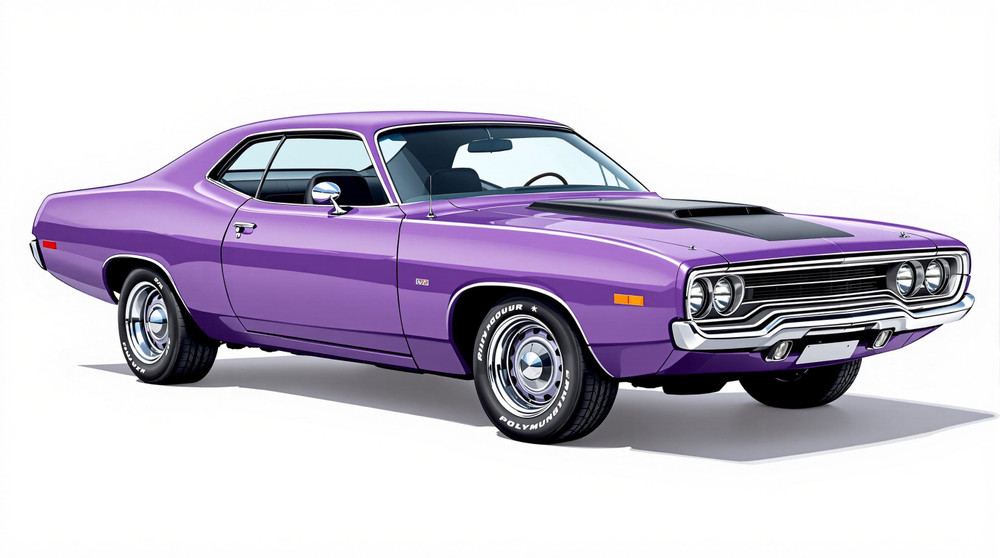Image of 1971 Plymouth Road Runner, Note: These illustrations use artistic license and may differ from actual historical models.
Performance Metrics
Fundamental Metrics
Emotional Appeal
MMP Rating
| Engine Specifications | |
|---|---|
| Engine Options: | 383 CID V8, 440 CID V8, 426 CID Hemi V8 |
| Displacement Range: | 383-426 cubic inches |
| Horsepower Range: | 300-425 hp |
| Torque: | 400-490 lb-ft |
| Compression Ratio: | 8.5:1 (383 CID V8), 10.1:1 (440 CID V8), 10.25:1 (426 CID Hemi V8) |
| Ignition System: | Electronic |
| Cooling System: | Liquid-cooled |
| Performance Specifications | |
| 0-60 Time: | 6.4 seconds |
| 1/4 Mile Time: | 14.7 seconds |
| Top Speed: | 130 mph |
| Transmission and Drive | |
| Drive Type: | Rear-wheel drive |
| Transmission Type: | 3-speed automatic, 4-speed manual |
| Fuel and Efficiency | |
| Fuel System Type: | Carburetor |
| MPG: | 10-12 mpg |
| Dimensions and Brakes | |
| Brakes: | Front disc, rear drum |
| Wheelbase: | 115 inches |
| Weight: | 3,600 lbs |
Note: Specifications for classic cars are given to the best of our ability, considering the limited and variant data available.
1971 Plymouth Road Runner: The Quintessential Muscle Car
The 1971 Plymouth Road Runner stands as a testament to the era of muscle car dominance, a period when raw power and bold styling ruled the American roads. Born from the Plymouth division of Chrysler, this iconic vehicle was designed for the enthusiast who craved performance without the frills and high costs of other models. As a direct descendant of the original 1968 model, the '71 Road Runner made an indelible mark on automotive history by offering an affordable, high-performance driving experience.
Unique to its legacy is the Warner Bros. licensing deal that allowed Plymouth to use the Road Runner name and cartoon character, complete with its signature "beep-beep" horn that echoed the animated bird's catchphrase. This playful feature added to the car's charm and helped it stand out in a crowded market of serious contenders.
Design and Innovation
The 1971 model year introduced a significant redesign for the Road Runner, with more pronounced "fuselage" body styling that gave it a sleeker, more aerodynamic look. The exterior featured broad shoulders and a semi-fastback roofline, while the front end sported a split grille and dual headlamps that exuded aggression. Inside, drivers were greeted with a no-nonsense cabin focused on functionality, though Plymouth didn't skimp on comfort with high-grade materials and supportive seats.
Technological advancements for its time included optional air grabber hood scoops that improved engine breathing and added to its muscular appearance. Color options ranged from subtle to vibrant, with High Impact colors like "Curious Yellow" and "Vitamin C" being popular choices among enthusiasts. The most iconic body style was arguably the hardtop coupe, often paired with performance packages that heightened its allure.
Historical Significance
The 1971 Road Runner's impact on automotive design was substantial; it helped solidify the muscle car ethos of affordable performance. It stood apart from competitors with its blend of power and simplicity, embodying the blue-collar spirit of its target audience. Its lasting influence can be seen in modern muscle cars that still chase the balance between everyday usability and thrilling power.
Performance and Handling
Performance-wise, the '71 Road Runner came standard with a robust 383 cubic-inch V8 engine but could be outfitted with monstrous powerplants like the legendary 426 Hemi or 440 Six Pack. These engines propelled the car from 0-60 mph in under 7 seconds—a remarkable feat for its time. On twisty roads or when encountering rough surfaces, drivers appreciated its sturdy suspension setup and responsive steering which provided a confident driving experience.
The symphony of exhaust notes played by its V8 engines was music to any gearhead's ears, while the visceral feel of acceleration and road connection made every drive an event.
Ownership Experience
As a daily driver or weekend warrior at local shows, owning a '71 Road Runner was as much about making a statement as it was about driving dynamics. Maintenance was straightforward for those familiar with Mopar products, though sourcing specific parts today can be challenging. Reliability was typical for its era—solid when well-maintained but requiring regular attention to keep in top form.
Fun Facts
Among interesting trivia is that some Road Runners were equipped with the "Air Grabber" hood which featured a shark's tooth graphic—an instant conversation starter. While not known for setting speed records, it held its own on drag strips across America. Criticisms often centered around fuel economy—a common trade-off for performance at that time.
Collector's Information
Today's collectors cherish the 1971 Plymouth Road Runner for its raw appeal and historical significance. While production numbers were lower than earlier years due to insurance surcharges on muscle cars, estimates suggest around 14,000 units were produced. Values vary widely based on condition and originality but can range from $30,000 to well over $100,000 for pristine examples or those with rare options like the Hemi engine.
The market trend has generally shown appreciation over time as enthusiasts seek out these symbols of American automotive history.
Conclusion
The 1971 Plymouth Road Runner remains an emblematic figure in muscle car culture—cherished for its straightforward approach to performance and distinctive character. Its blend of style, power, and affordability continues to captivate collectors and enthusiasts alike, ensuring its legacy rumbles on as loudly as its iconic V8 engines.
1971 Plymouth Road Runner Catalog of Parts
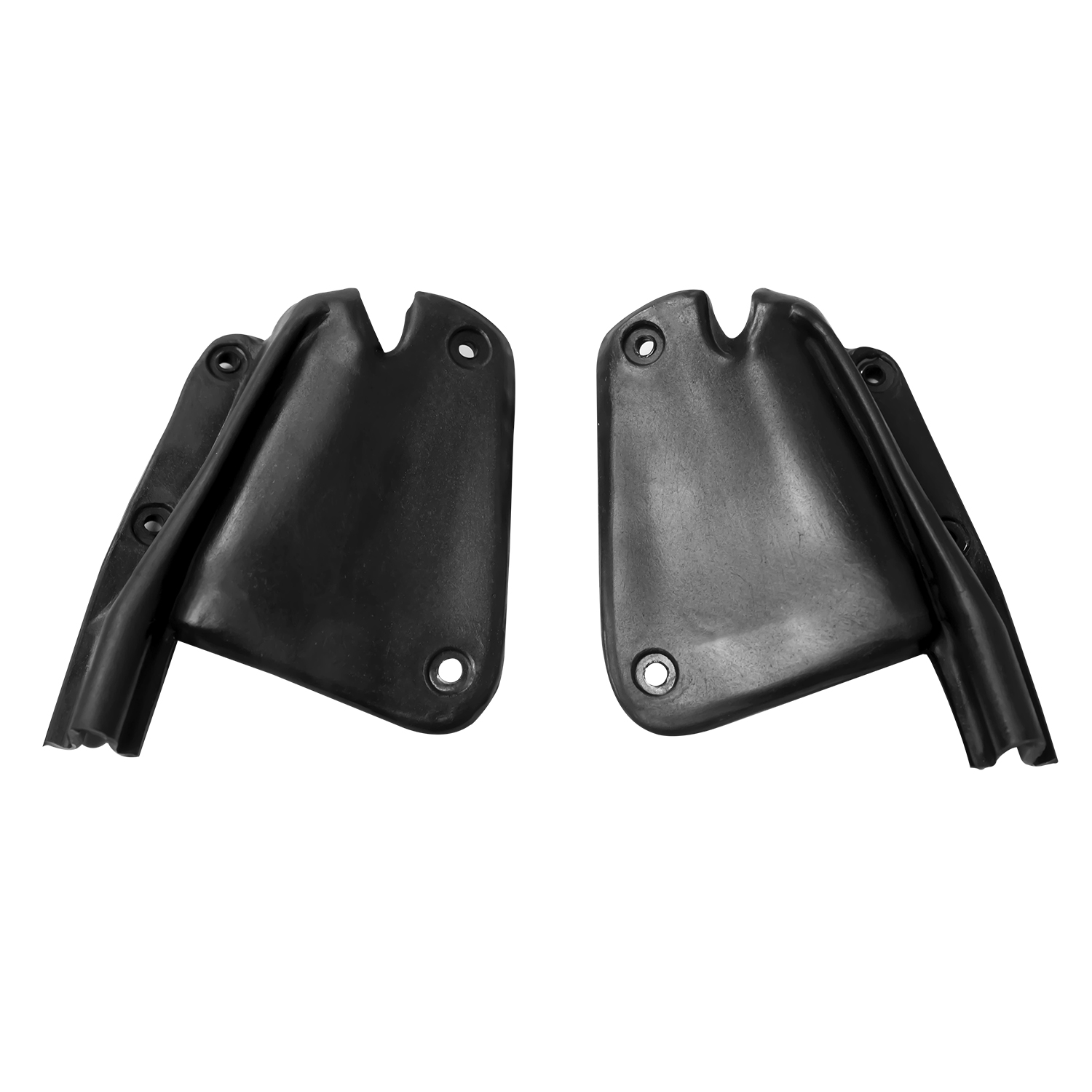 1971 Plymouth Road Runner Door end-cap filler seals-ALP 7011Door end-cap filler seals. Fits '71-'74 Plymouth B-body and '73-'74 Dodge B-body 2-door hardtop and coupe models. Replaces OEM#'s 3581894/5. Pair. R&L.
1971 Plymouth Road Runner Door end-cap filler seals-ALP 7011Door end-cap filler seals. Fits '71-'74 Plymouth B-body and '73-'74 Dodge B-body 2-door hardtop and coupe models. Replaces OEM#'s 3581894/5. Pair. R&L.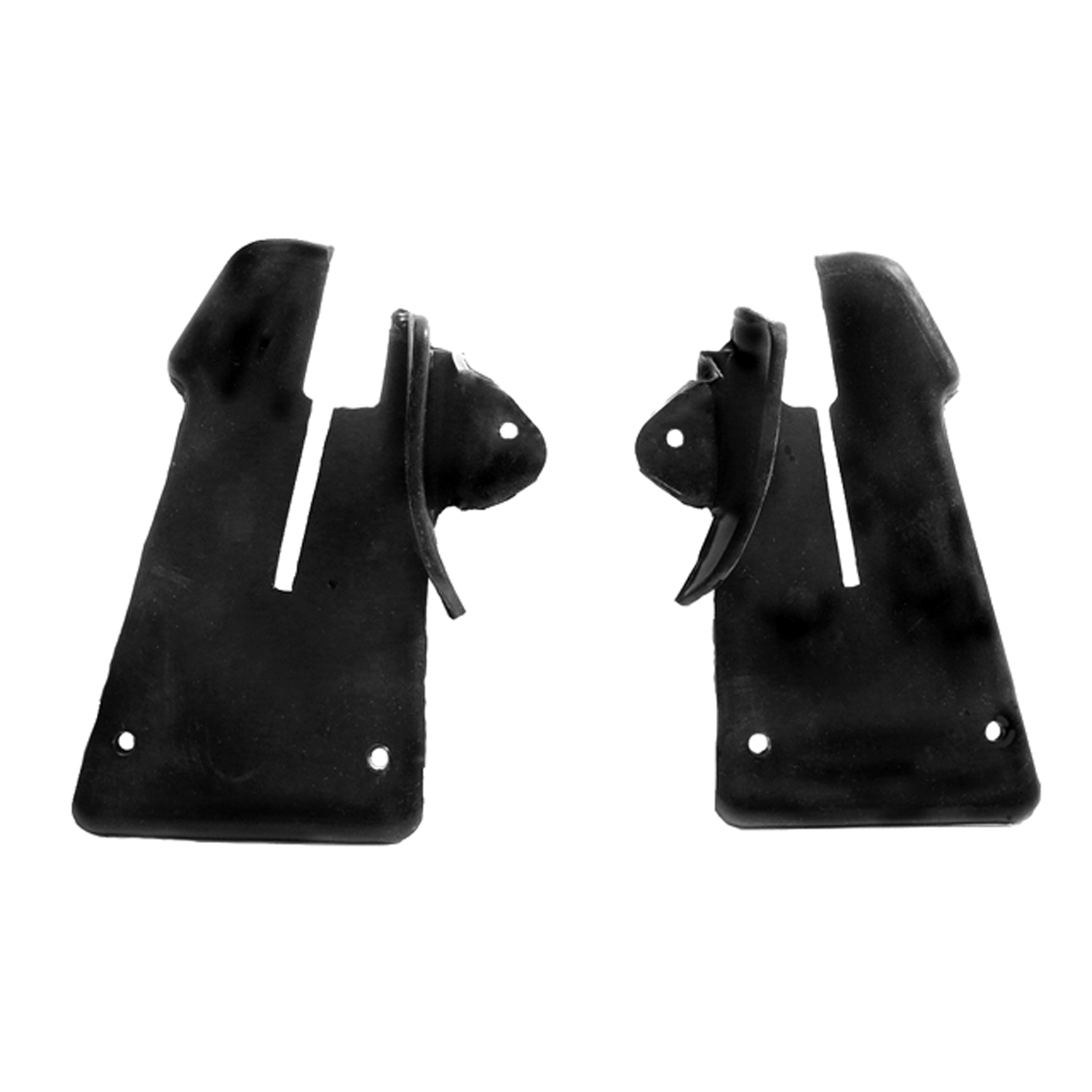 1971 Plymouth Road Runner Quarter pillar-post end seals. (Also known as U-jamb seals)-ALP 7012Quarter pillar-post end seals. (Also known as U-jamb seals). Fits '71-'74 Plymouth B-body and '73-'74 Dodge B-body 2-door hardtop and coupe (except Charger SE).
1971 Plymouth Road Runner Quarter pillar-post end seals. (Also known as U-jamb seals)-ALP 7012Quarter pillar-post end seals. (Also known as U-jamb seals). Fits '71-'74 Plymouth B-body and '73-'74 Dodge B-body 2-door hardtop and coupe (except Charger SE). 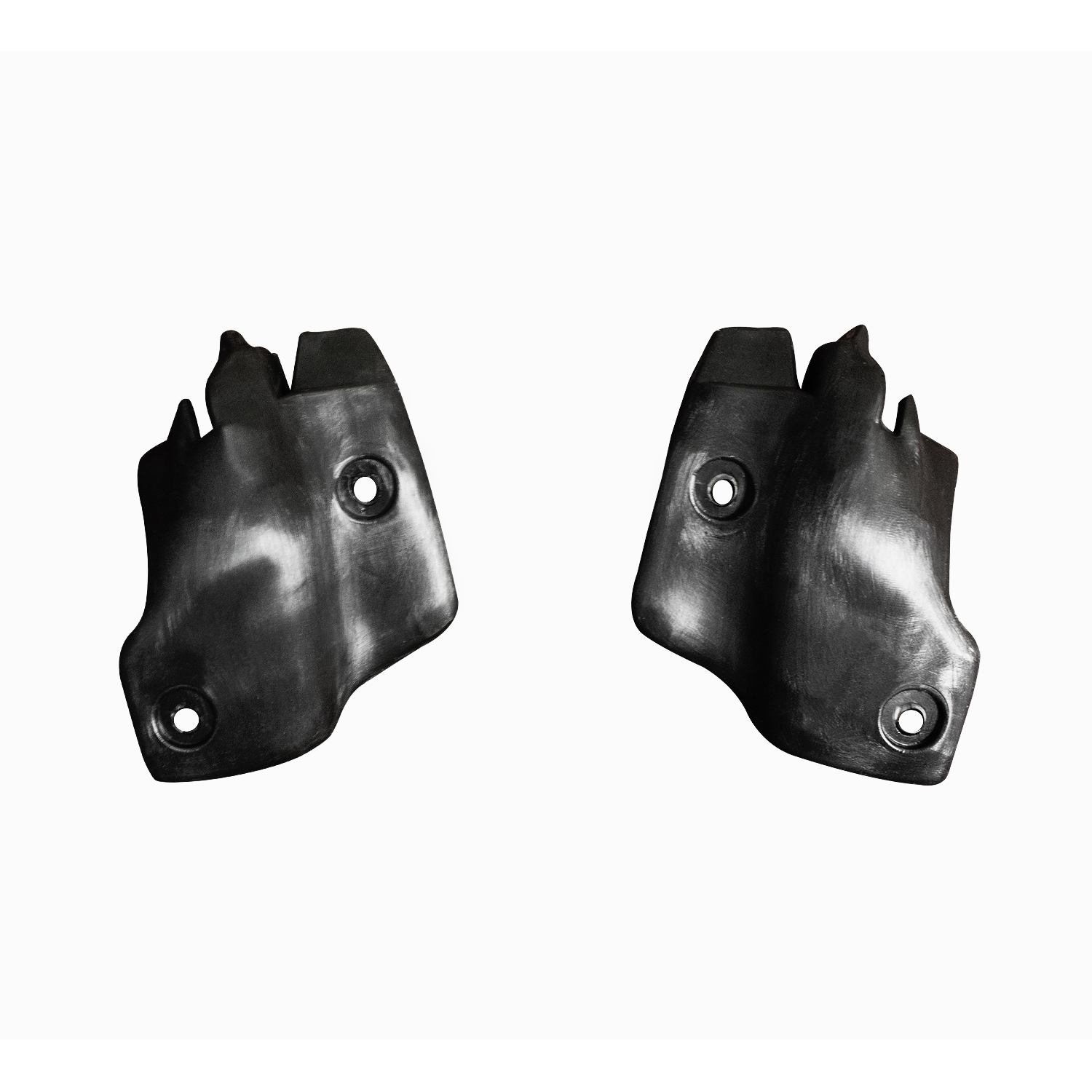 1971 Plymouth Road Runner Upper Hinge Pillar Seals-ALP 7014Upper Hinge Pillar Seals. Fits '71-'74 Mopar B-body 2-door hardtop and coupe.
1971 Plymouth Road Runner Upper Hinge Pillar Seals-ALP 7014Upper Hinge Pillar Seals. Fits '71-'74 Mopar B-body 2-door hardtop and coupe. 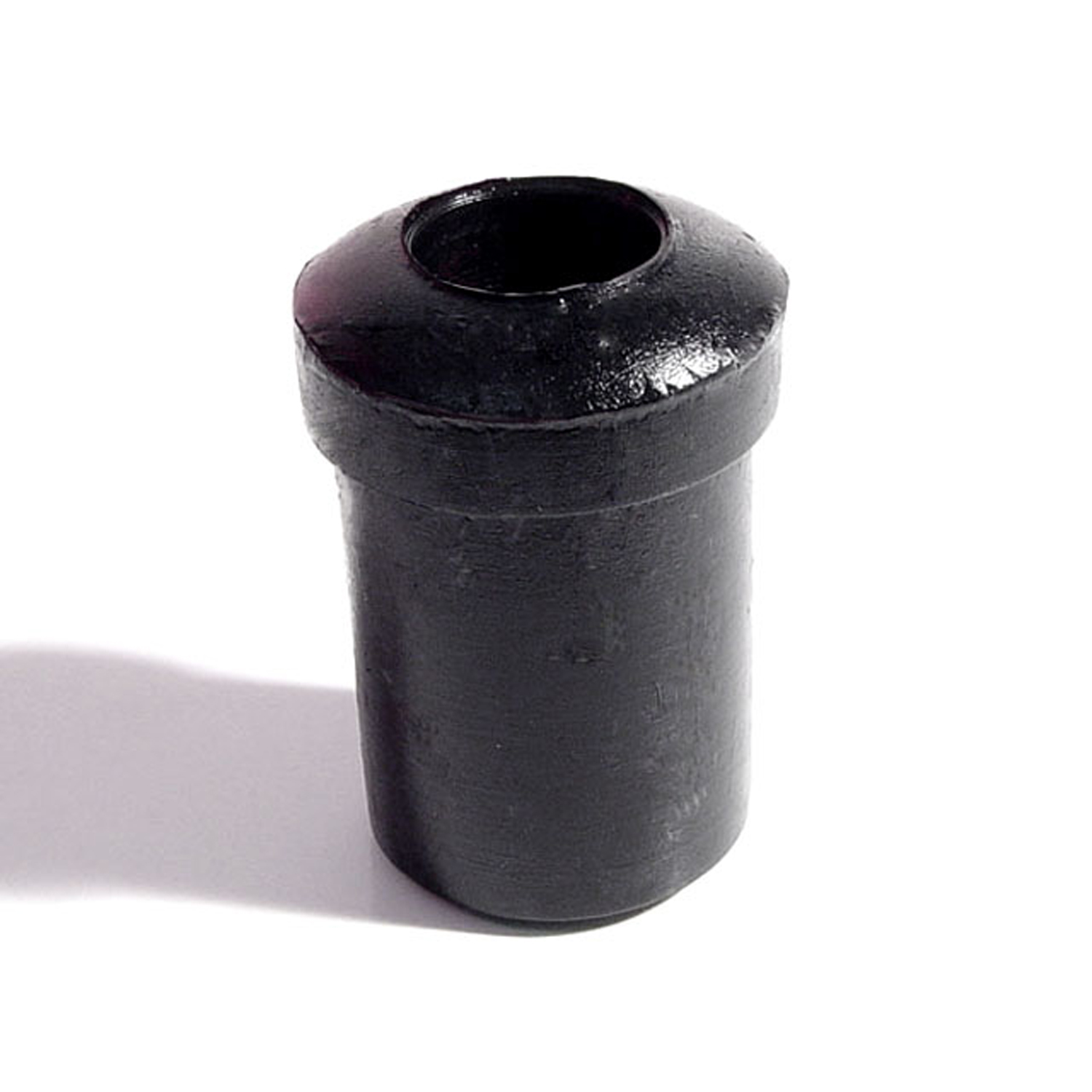 1971 Plymouth Road Runner Spring and Shackle Bushing. 1" bottom O.D-BN 20Spring and Shackle Bushing. 1" bottom O.D. X 1-5/8" high, with 9/16" I.D. Each
1971 Plymouth Road Runner Spring and Shackle Bushing. 1" bottom O.D-BN 20Spring and Shackle Bushing. 1" bottom O.D. X 1-5/8" high, with 9/16" I.D. Each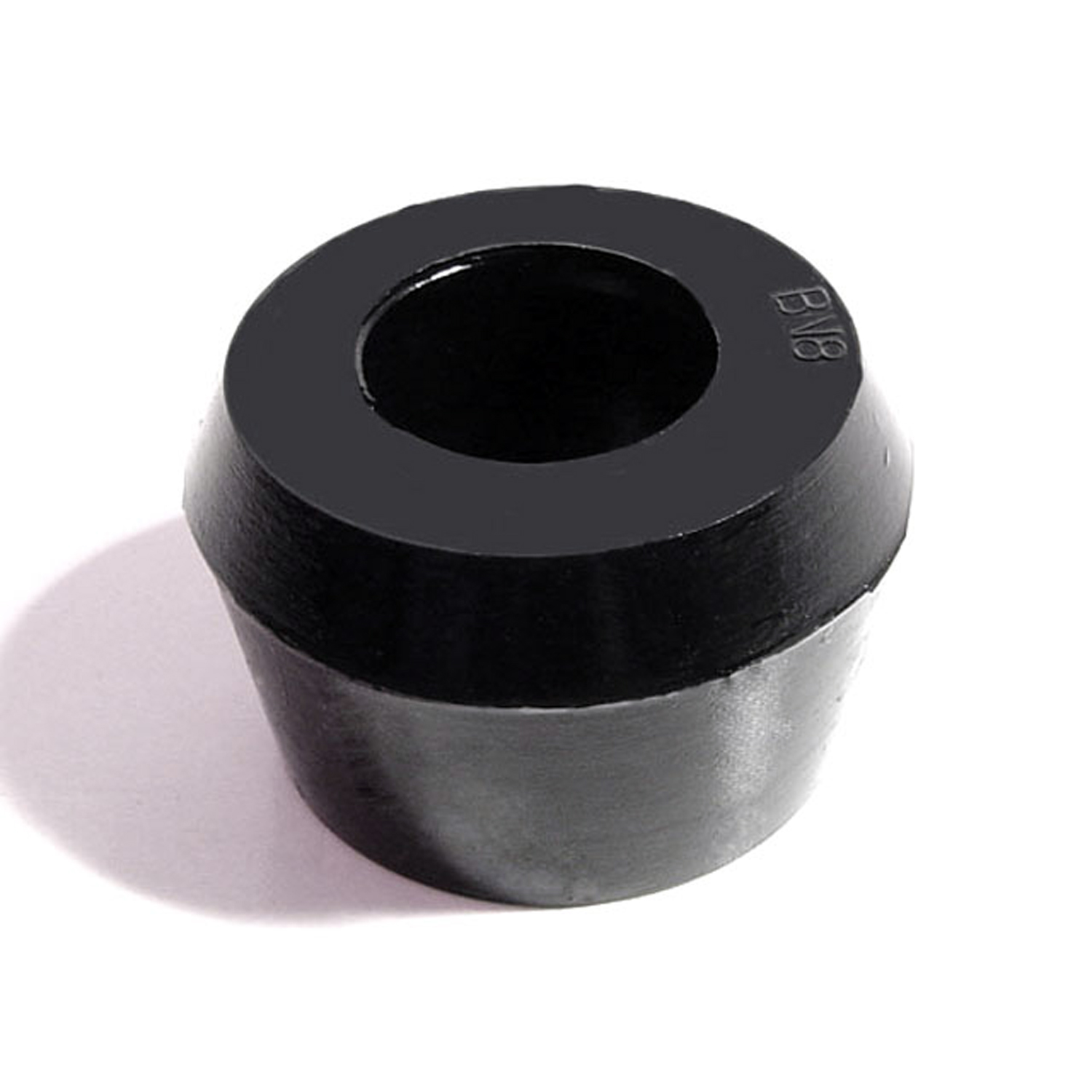 1971 Plymouth Road Runner Shock Absorber Grommet. 1-1/4" bottom O.D-BN 8Shock Absorber Grommet. 1-1/4" bottom O.D., 1" high, with 3/4" I.D. Each
1971 Plymouth Road Runner Shock Absorber Grommet. 1-1/4" bottom O.D-BN 8Shock Absorber Grommet. 1-1/4" bottom O.D., 1" high, with 3/4" I.D. Each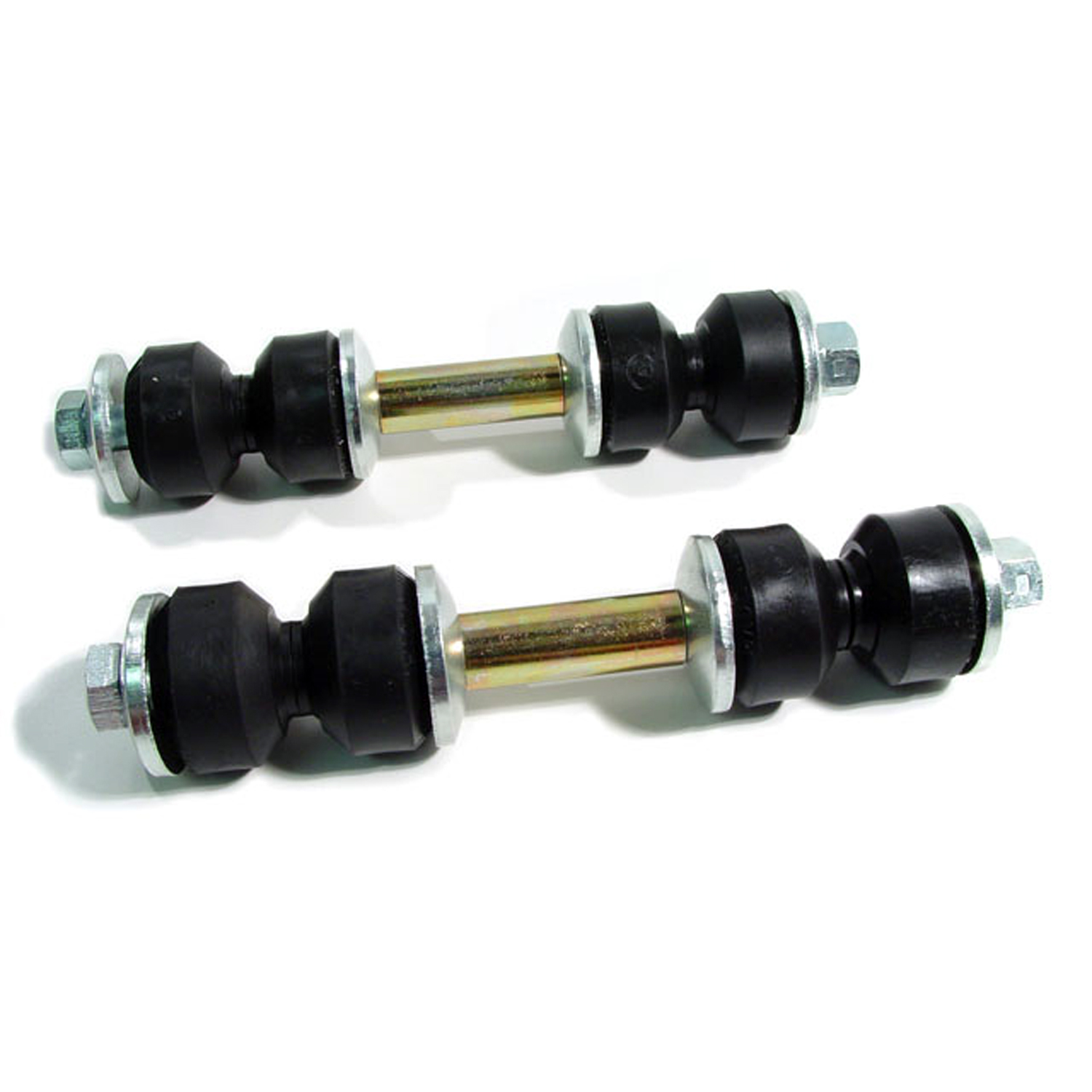 1971 Plymouth Road Runner Front Stabilizer End Repair Kit-BNK 22Front Stabilizer End Repair Kit. 22-piece set for two stabilizer bars. Contains all rubber bushings, washers, bolts and nuts, enough for one front end. Set
1971 Plymouth Road Runner Front Stabilizer End Repair Kit-BNK 22Front Stabilizer End Repair Kit. 22-piece set for two stabilizer bars. Contains all rubber bushings, washers, bolts and nuts, enough for one front end. Set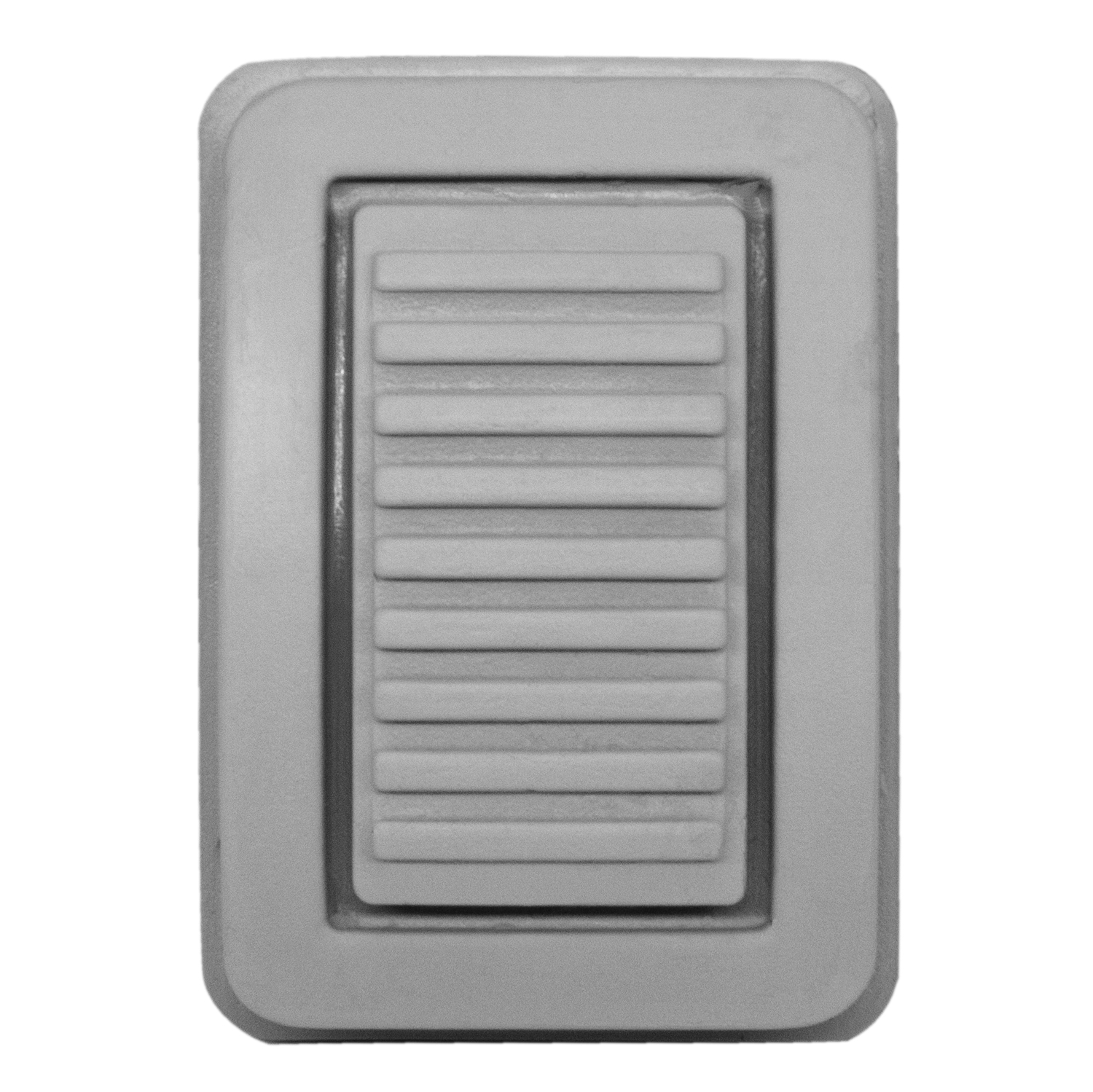 1971 Plymouth Road Runner Park Brake Pedal Pad, Black-CB 200-CPark Brake Pedal Pad, Black. Your stainless steel bezel fits over this new pad. 1-5/8" wide X 2-5/16" long. Each
1971 Plymouth Road Runner Park Brake Pedal Pad, Black-CB 200-CPark Brake Pedal Pad, Black. Your stainless steel bezel fits over this new pad. 1-5/8" wide X 2-5/16" long. Each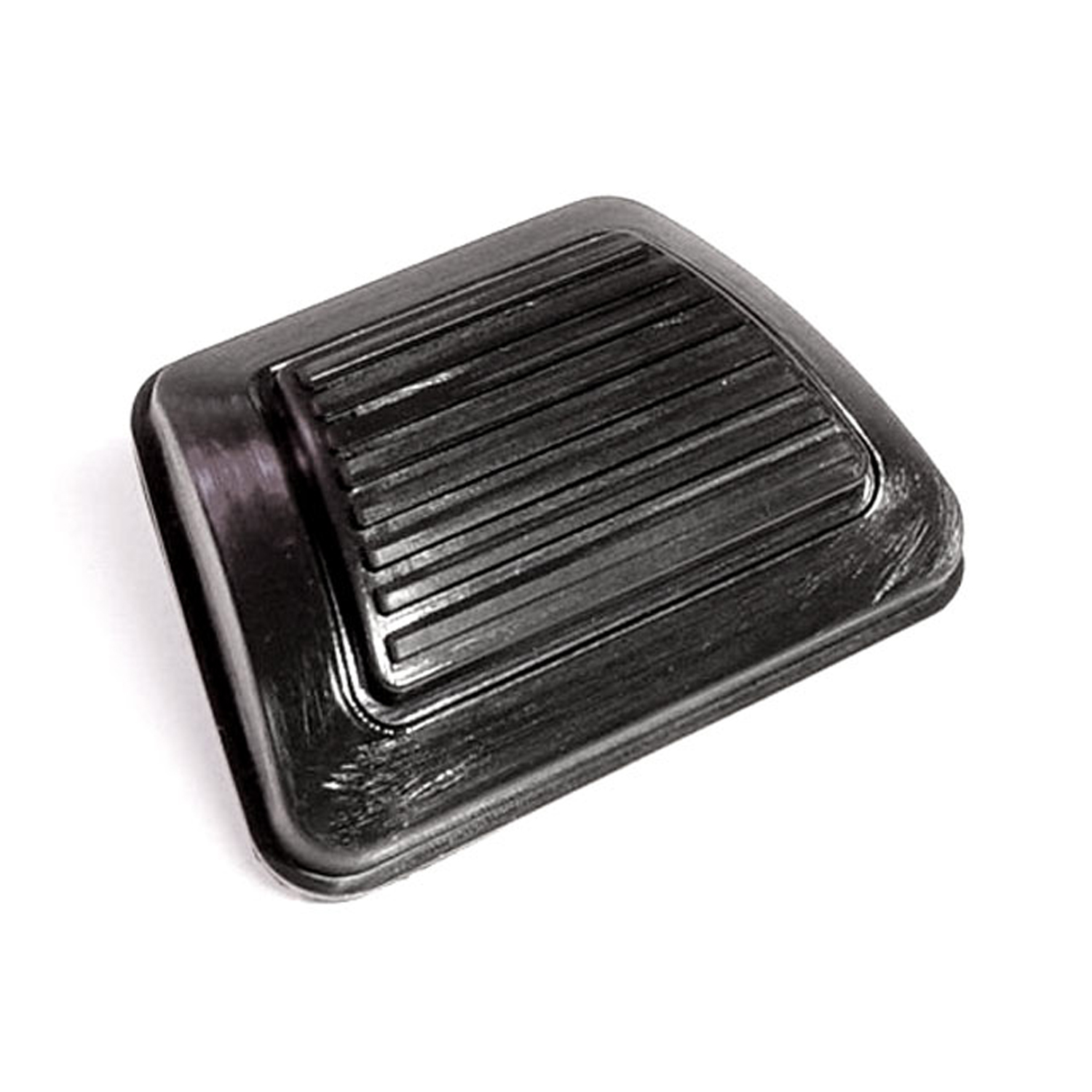 1971 Plymouth Road Runner Clutch and Brake Pedal Pad. 2-1/4" X 2-3/8" X 3-1/4"-CB 201Clutch and Brake Pedal Pad. 2-1/4" X 2-3/8" X 3-1/4". Each
1971 Plymouth Road Runner Clutch and Brake Pedal Pad. 2-1/4" X 2-3/8" X 3-1/4"-CB 201Clutch and Brake Pedal Pad. 2-1/4" X 2-3/8" X 3-1/4". Each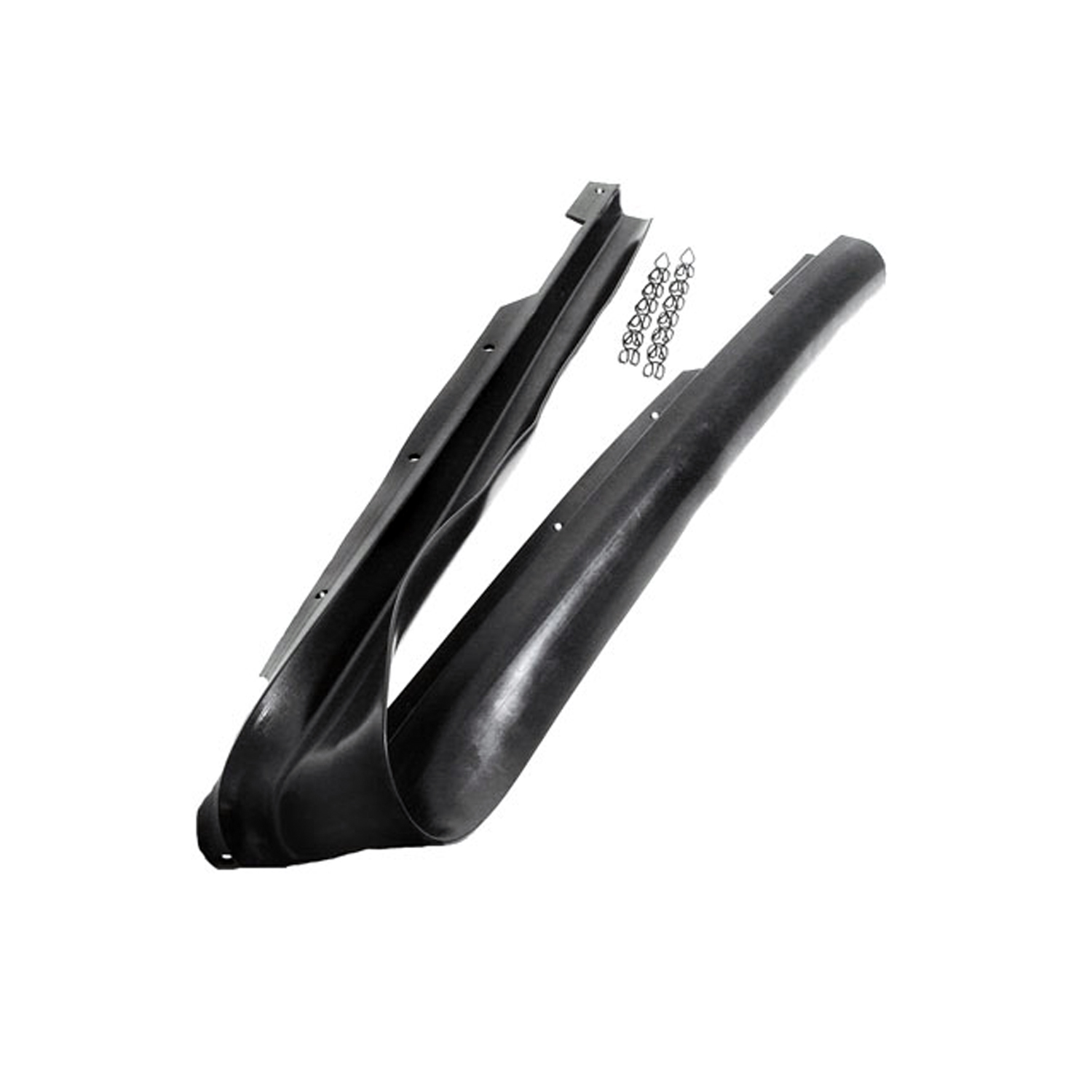 1971 Plymouth Road Runner Hood to Radiator Seal. Each-CS 20-GHood to Radiator Seal. Each
1971 Plymouth Road Runner Hood to Radiator Seal. Each-CS 20-GHood to Radiator Seal. Each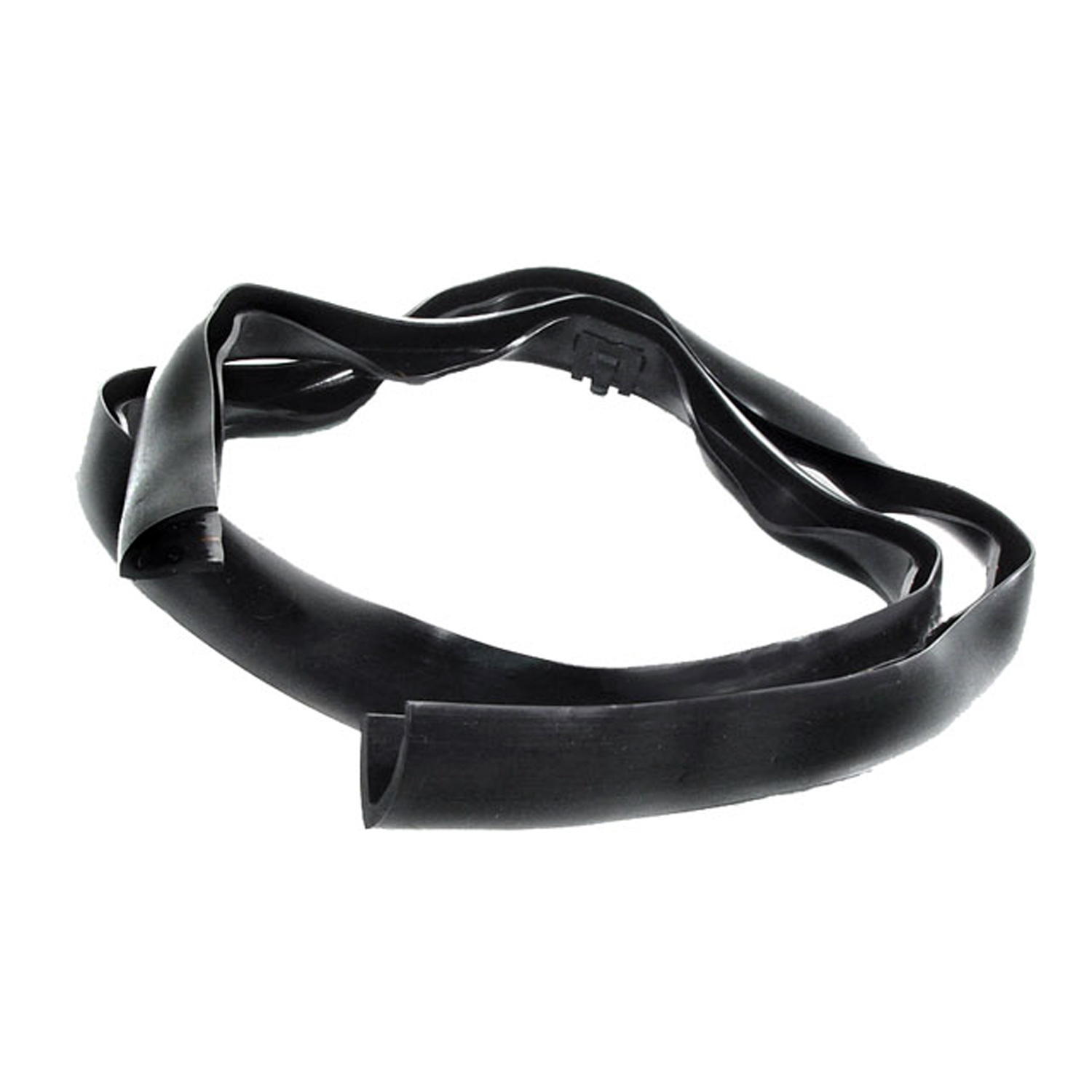 1971 Plymouth Road Runner Hood to Cowl Seal, 48" Long. Each-CS 20-YHood to Cowl Seal, 48" Long. Each
1971 Plymouth Road Runner Hood to Cowl Seal, 48" Long. Each-CS 20-YHood to Cowl Seal, 48" Long. Each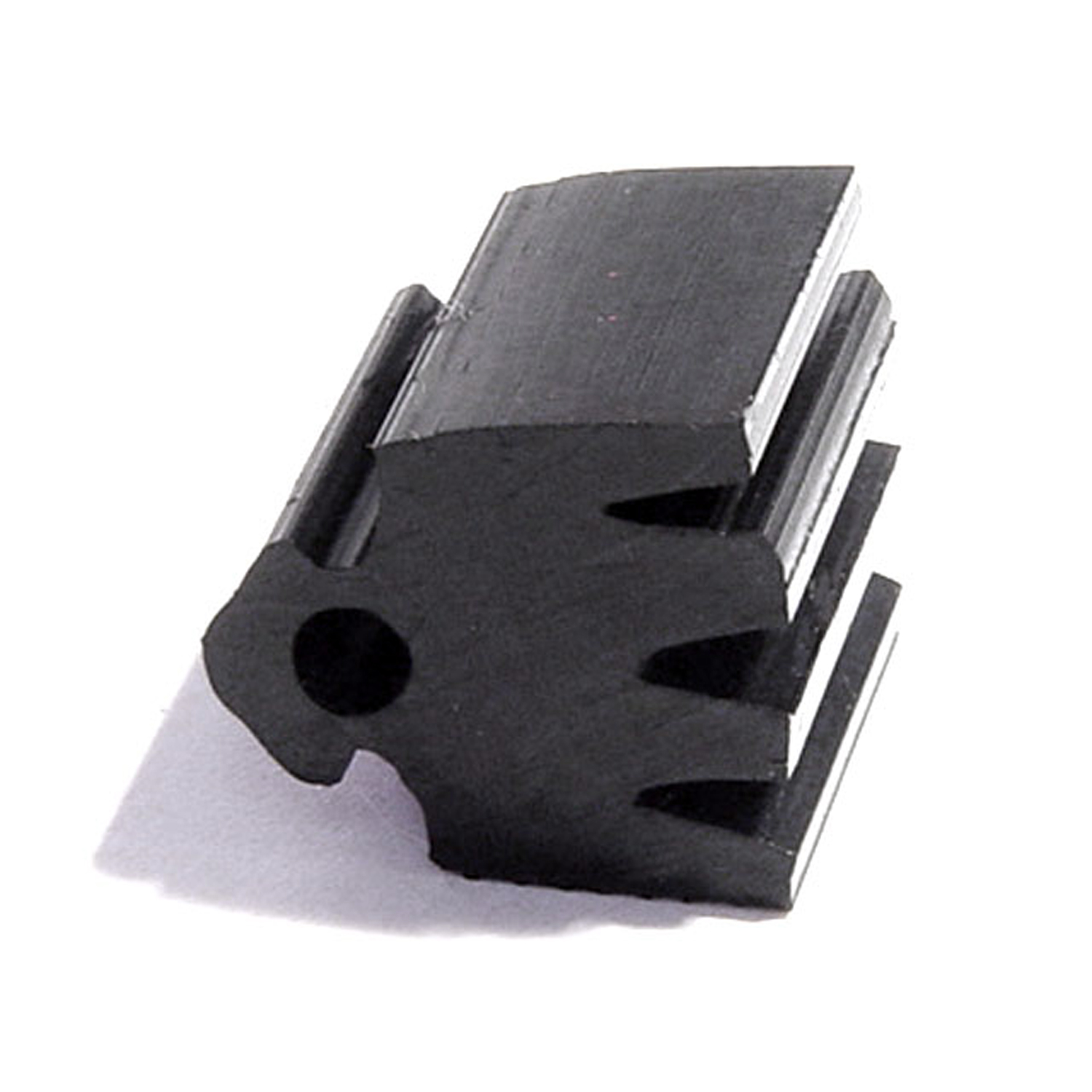 1971 Plymouth Road Runner Door Bumper. 5/8" wide. Made from extrusion. Each-DB 53Door Bumper. 5/8" wide. Made from extrusion. Each
1971 Plymouth Road Runner Door Bumper. 5/8" wide. Made from extrusion. Each-DB 53Door Bumper. 5/8" wide. Made from extrusion. Each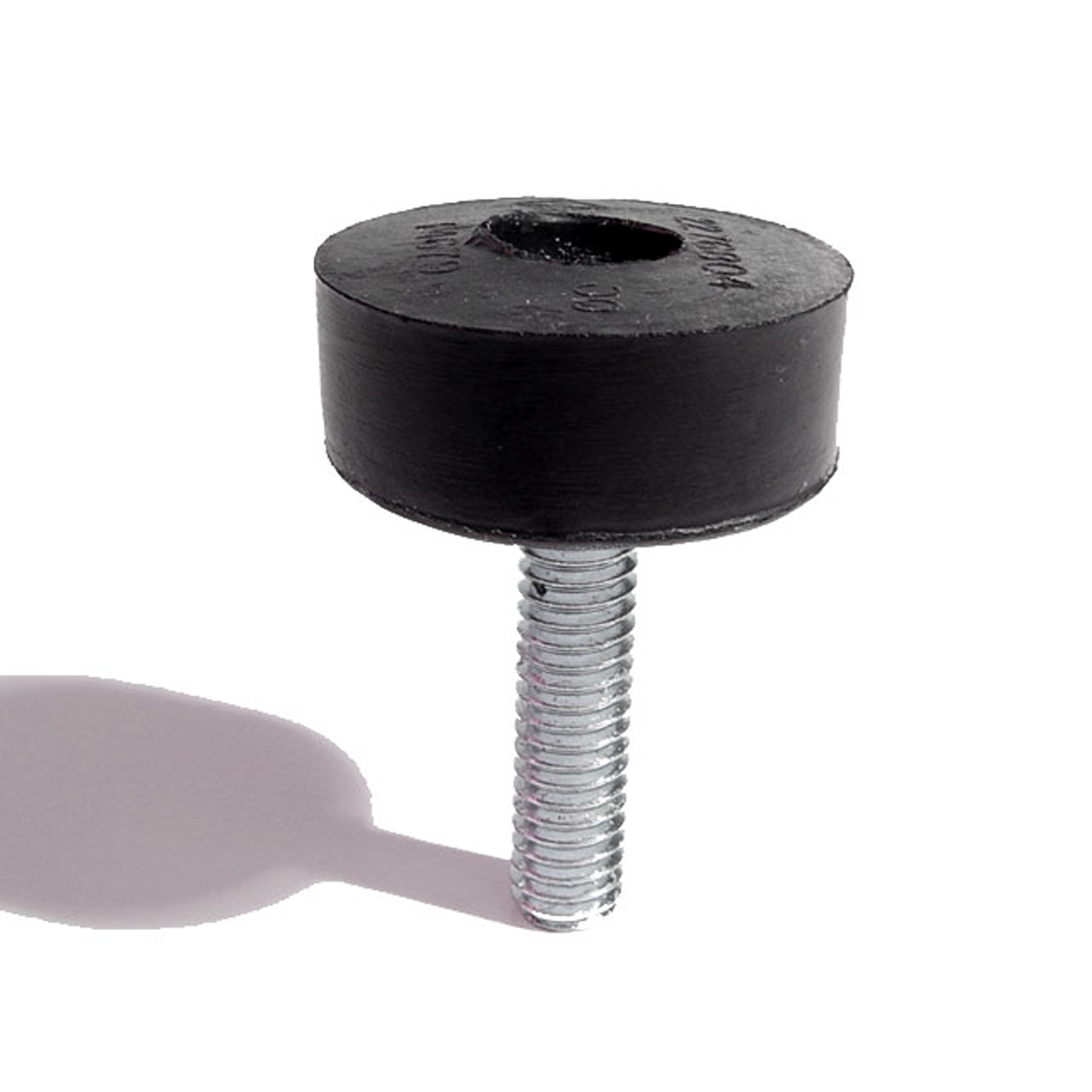 1971 Plymouth Road Runner Hood Adjustment Bolt and Bumper-HA 8Hood Adjustment Bolt and Bumper. 1-3/16" diameter rubber head. 5/16" thick X 18 threads/inch X 1-1/4" long bolt. Each
1971 Plymouth Road Runner Hood Adjustment Bolt and Bumper-HA 8Hood Adjustment Bolt and Bumper. 1-3/16" diameter rubber head. 5/16" thick X 18 threads/inch X 1-1/4" long bolt. Each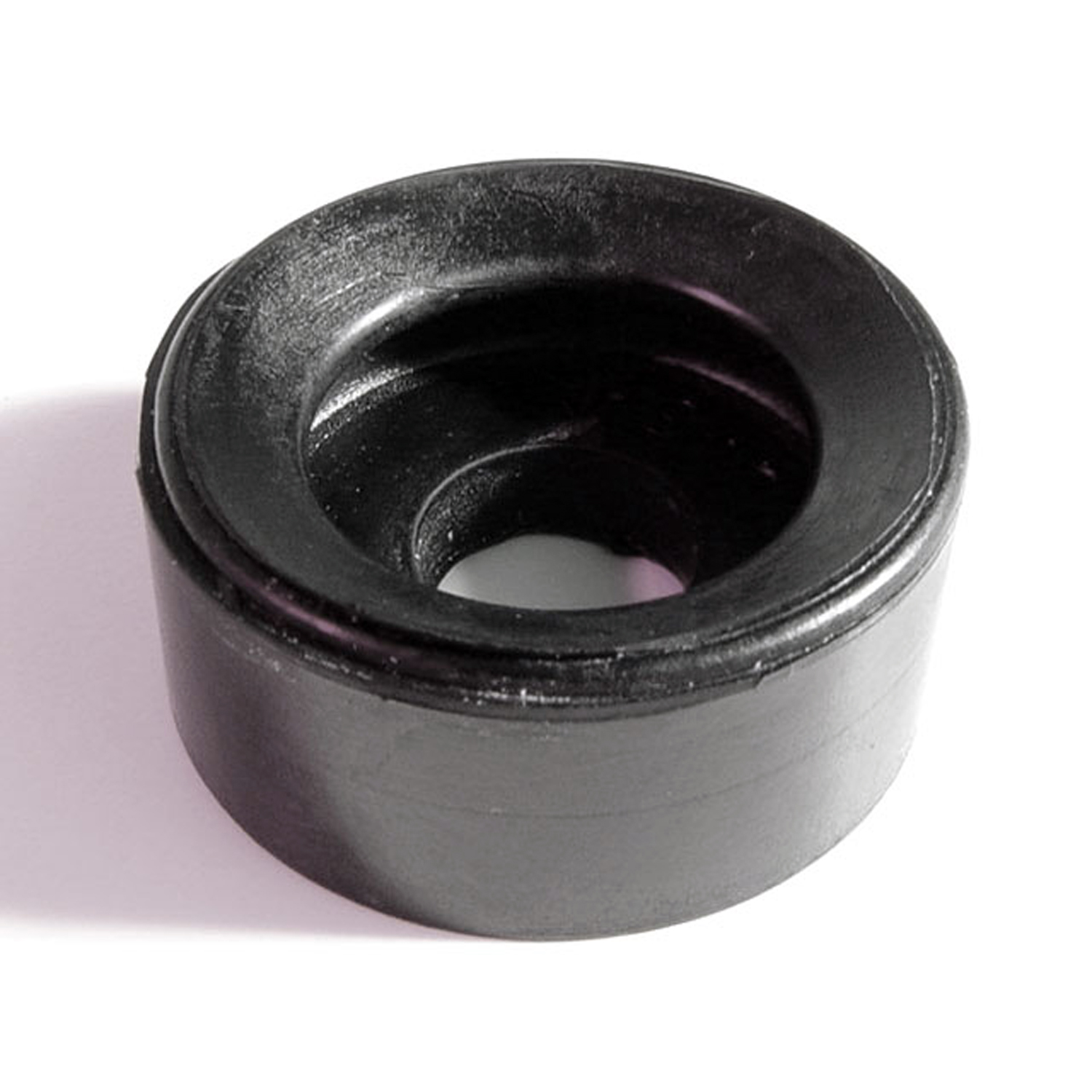 1971 Plymouth Road Runner Hood Adjustment Bumper. 1-1/4" O.D-HA 8-AHood Adjustment Bumper. 1-1/4" O.D., 3/4" large hole, 7/16" small hole, 1/2" thick. Each
1971 Plymouth Road Runner Hood Adjustment Bumper. 1-1/4" O.D-HA 8-AHood Adjustment Bumper. 1-1/4" O.D., 3/4" large hole, 7/16" small hole, 1/2" thick. Each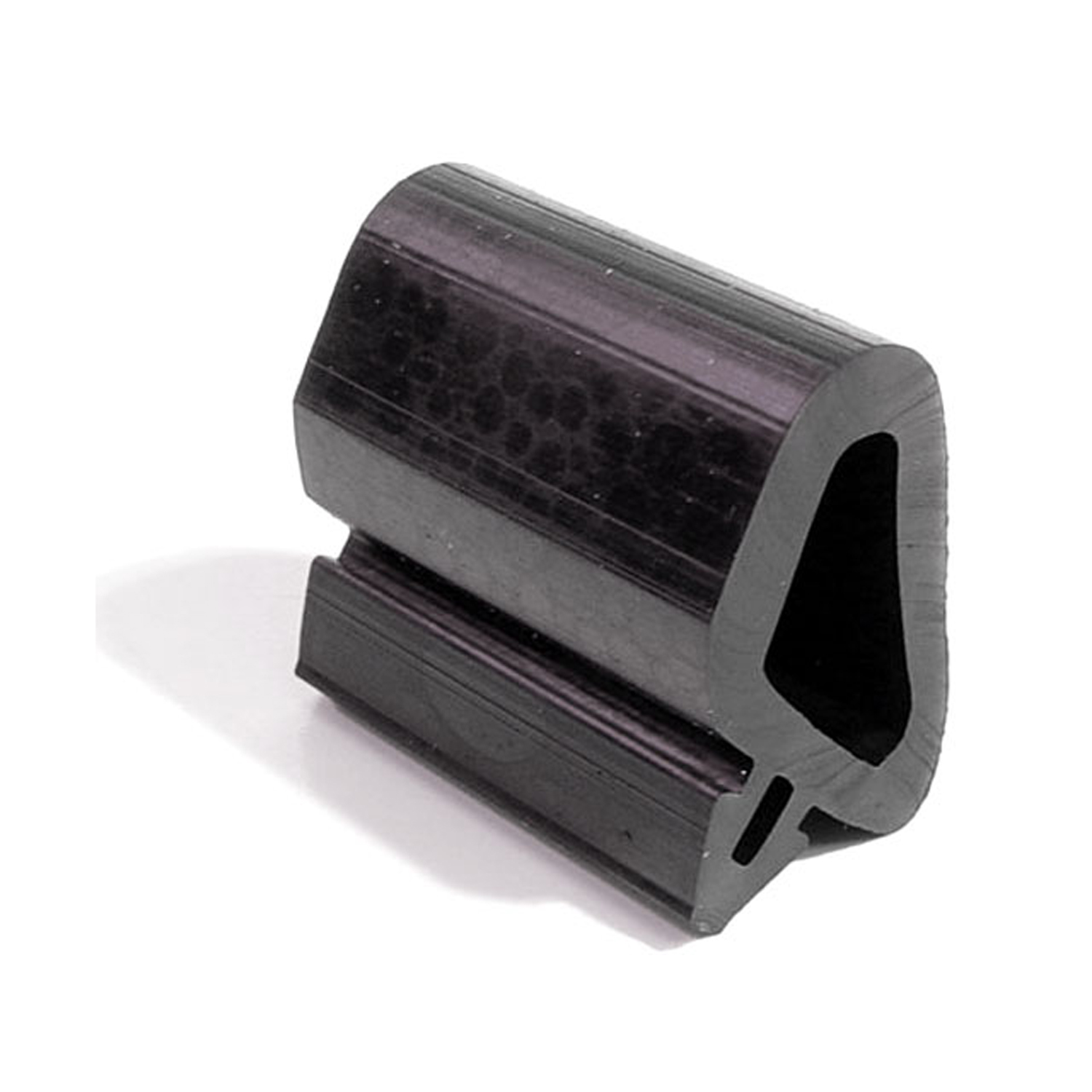 1971 Plymouth Road Runner Hood Side Bumper. Four used per car. Each-HF 19Hood Side Bumper. Measures 0.91" wide x 1.00" tall x 1.043" deep. Four used per car. Each
1971 Plymouth Road Runner Hood Side Bumper. Four used per car. Each-HF 19Hood Side Bumper. Measures 0.91" wide x 1.00" tall x 1.043" deep. Four used per car. Each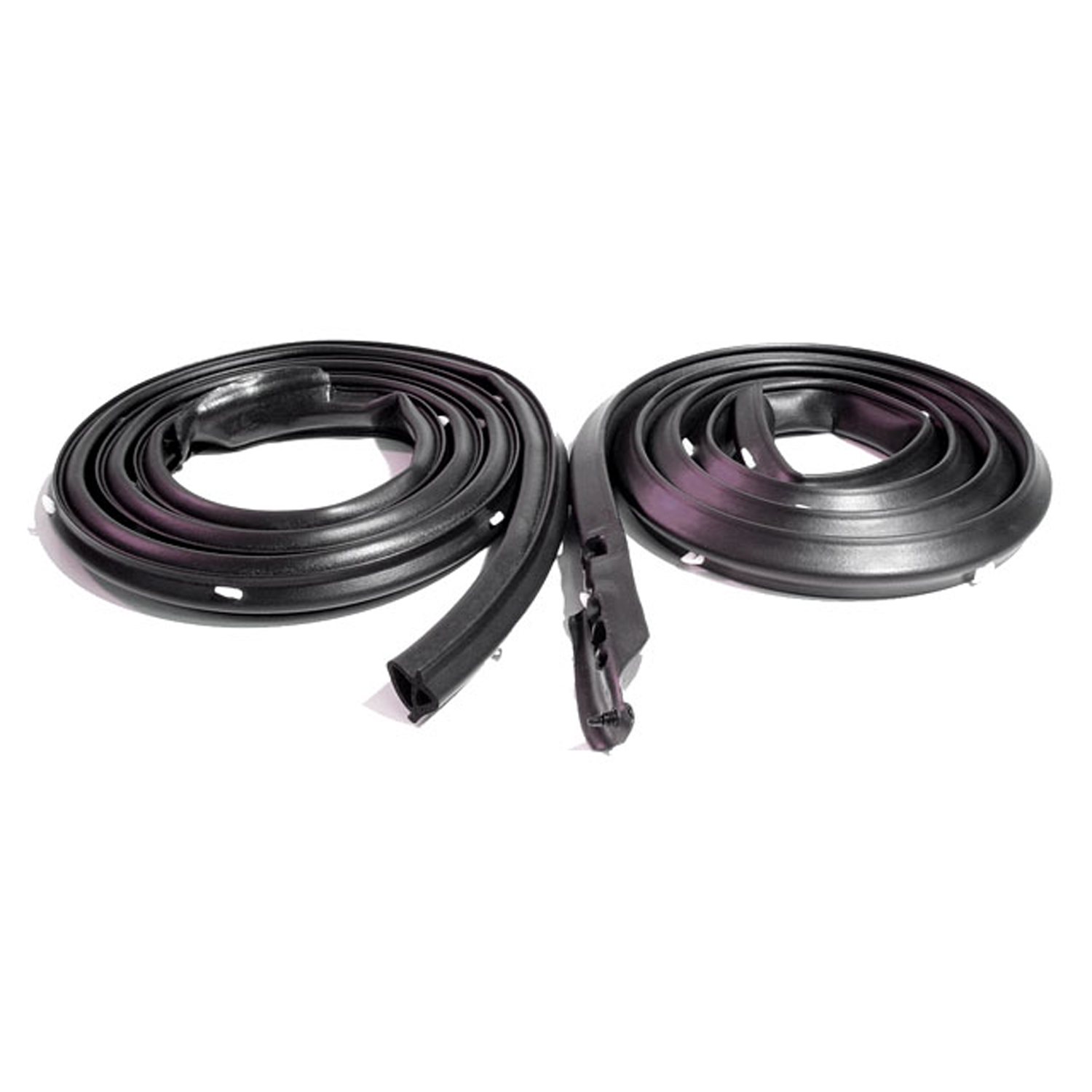 1971 Plymouth Road Runner Molded Door Seals with Clips. For 2-Door Hardtop Only-LM 23-DMolded Door Seals with Clips. For 2-Door Hardtop Only. Pair R&L
1971 Plymouth Road Runner Molded Door Seals with Clips. For 2-Door Hardtop Only-LM 23-DMolded Door Seals with Clips. For 2-Door Hardtop Only. Pair R&L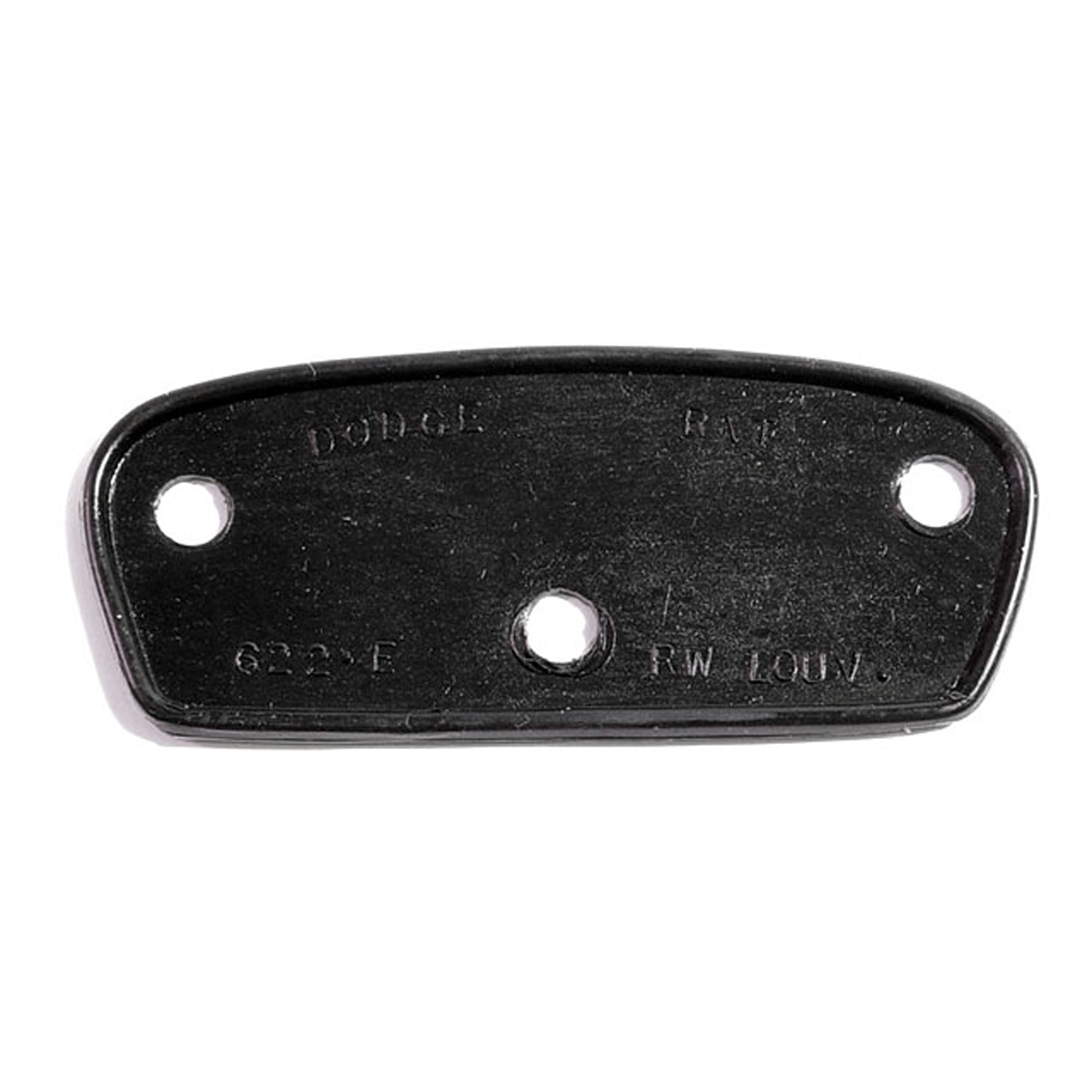 1971 Plymouth Road Runner Rear Window Louver Hinge Pad-MP 622-ERear Window Louver Hinge Pad. For 2-door coupe with rear louvers. 3-3/8" wide X 1-1/2" long. Each
1971 Plymouth Road Runner Rear Window Louver Hinge Pad-MP 622-ERear Window Louver Hinge Pad. For 2-door coupe with rear louvers. 3-3/8" wide X 1-1/2" long. Each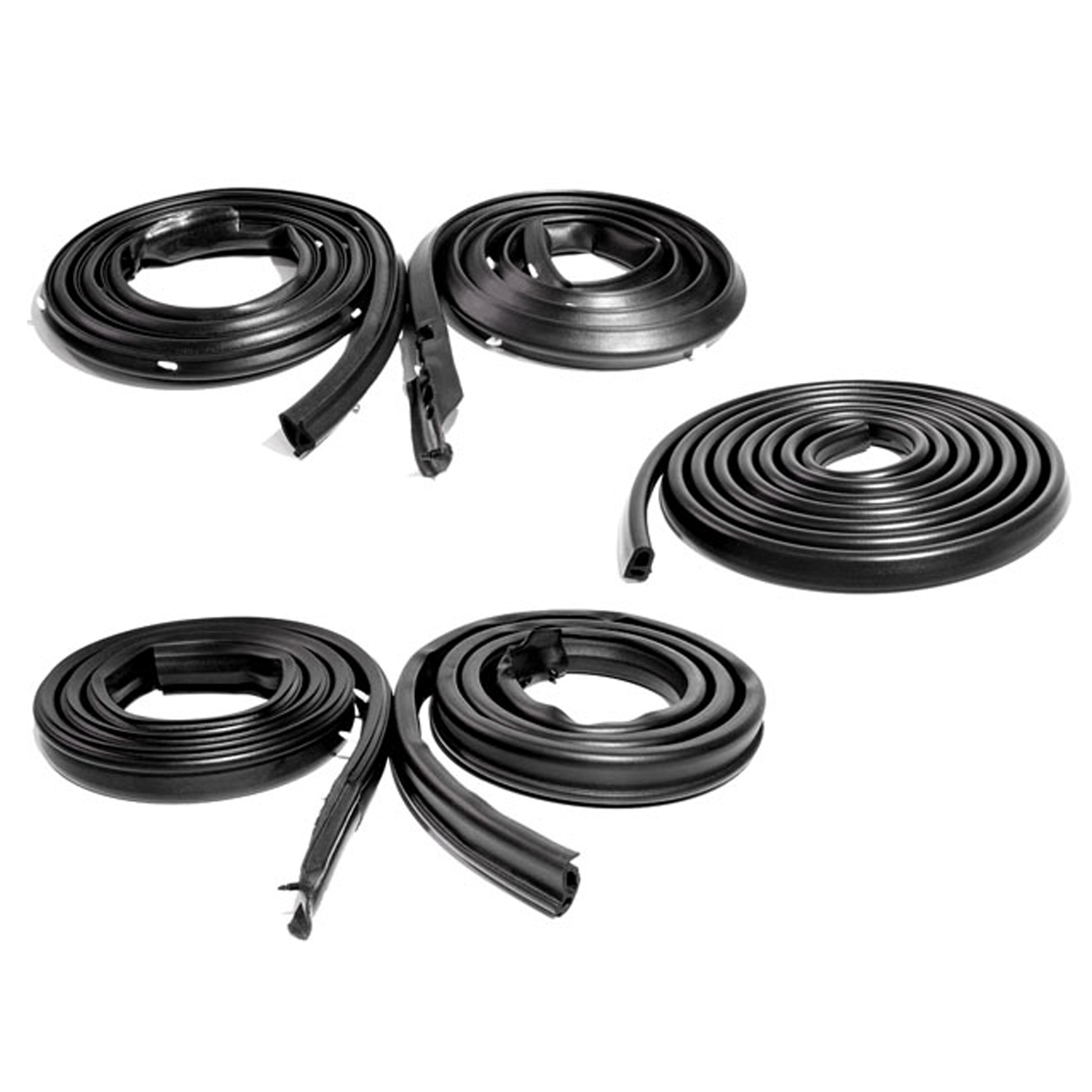 1971 Plymouth Road Runner Basic Kit, for 2-Door Hardtop (not SE)-RKB 4005-106Basic Kit, for 2-Door Hardtop (not SE). Door (LM 23-D) Roof Rail (RR 4002) Trunk (TK 56-B/18), Seals.
1971 Plymouth Road Runner Basic Kit, for 2-Door Hardtop (not SE)-RKB 4005-106Basic Kit, for 2-Door Hardtop (not SE). Door (LM 23-D) Roof Rail (RR 4002) Trunk (TK 56-B/18), Seals.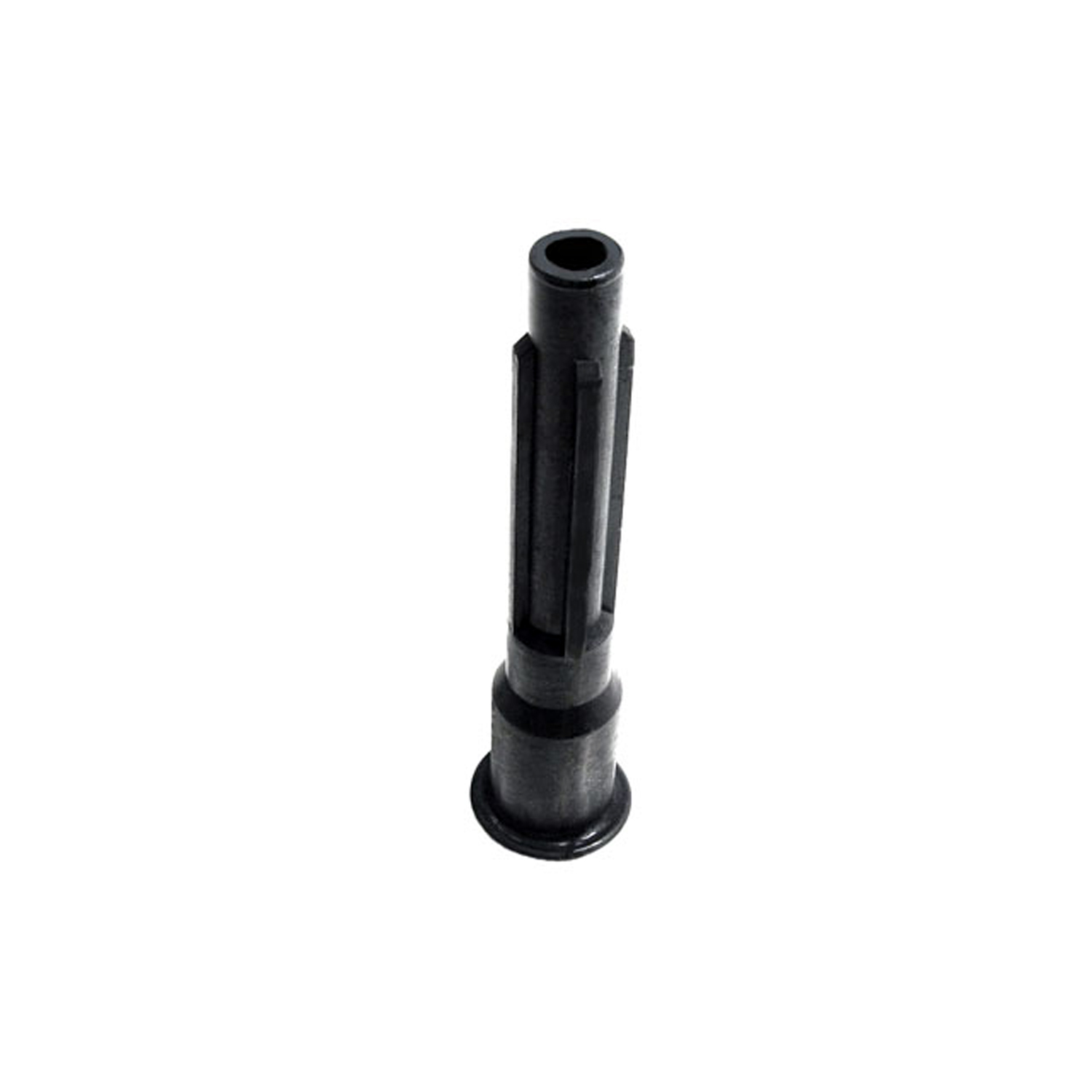 1971 Plymouth Road Runner Flexible Spark Plug Boot, used on Hemi's with power brakes-RP 1-MFlexible Spark Plug Boot, used on Hemi's with power brakes. 4" long, 5/16" upper i.d., 5/8" lower i.d. Each
1971 Plymouth Road Runner Flexible Spark Plug Boot, used on Hemi's with power brakes-RP 1-MFlexible Spark Plug Boot, used on Hemi's with power brakes. 4" long, 5/16" upper i.d., 5/8" lower i.d. Each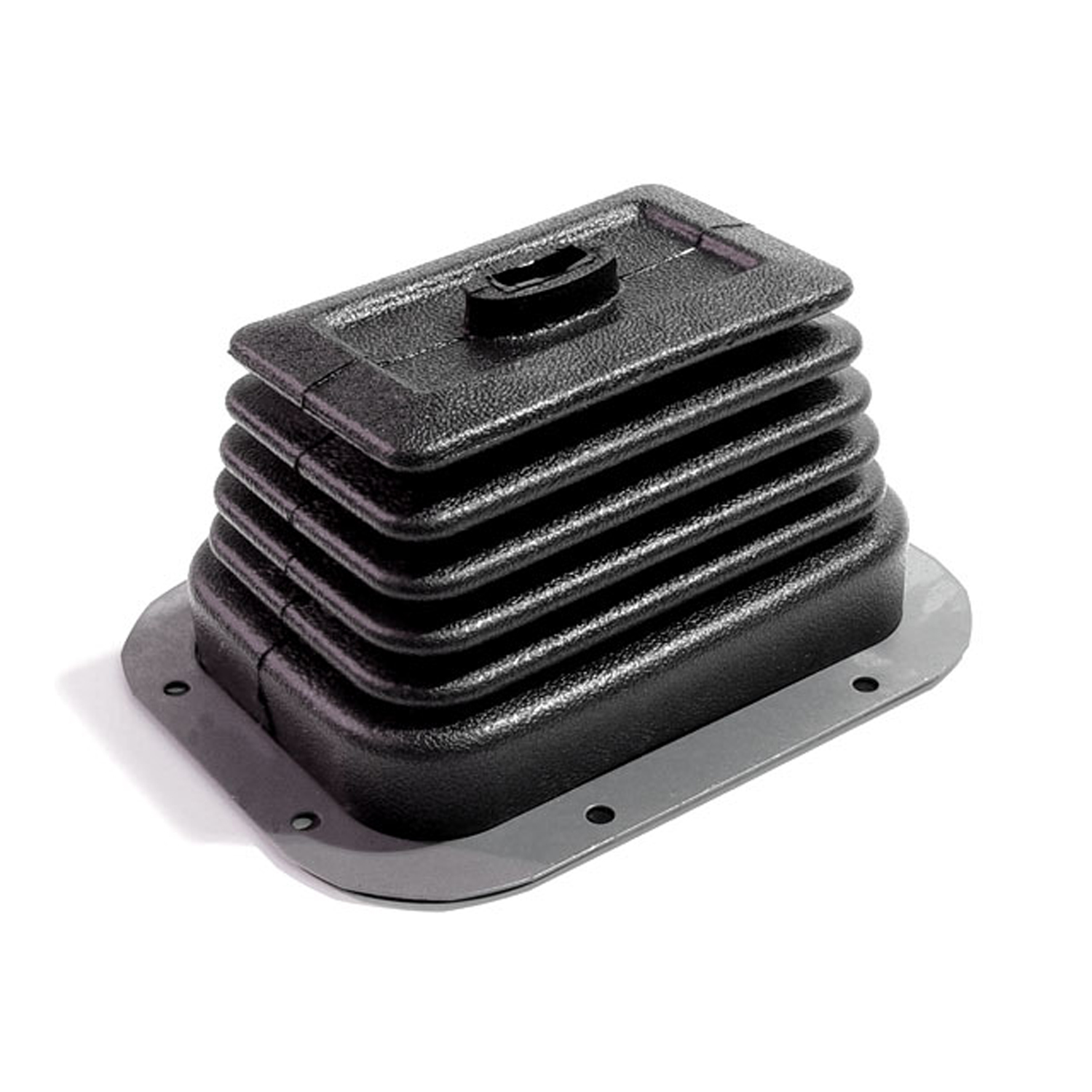 1971 Plymouth Road Runner Shift Boot, for Pistol Grip Shifter-RP 34-MShift Boot, for Pistol Grip Shifter. 7-1/4" X 5-1/4" at base. Each
1971 Plymouth Road Runner Shift Boot, for Pistol Grip Shifter-RP 34-MShift Boot, for Pistol Grip Shifter. 7-1/4" X 5-1/4" at base. Each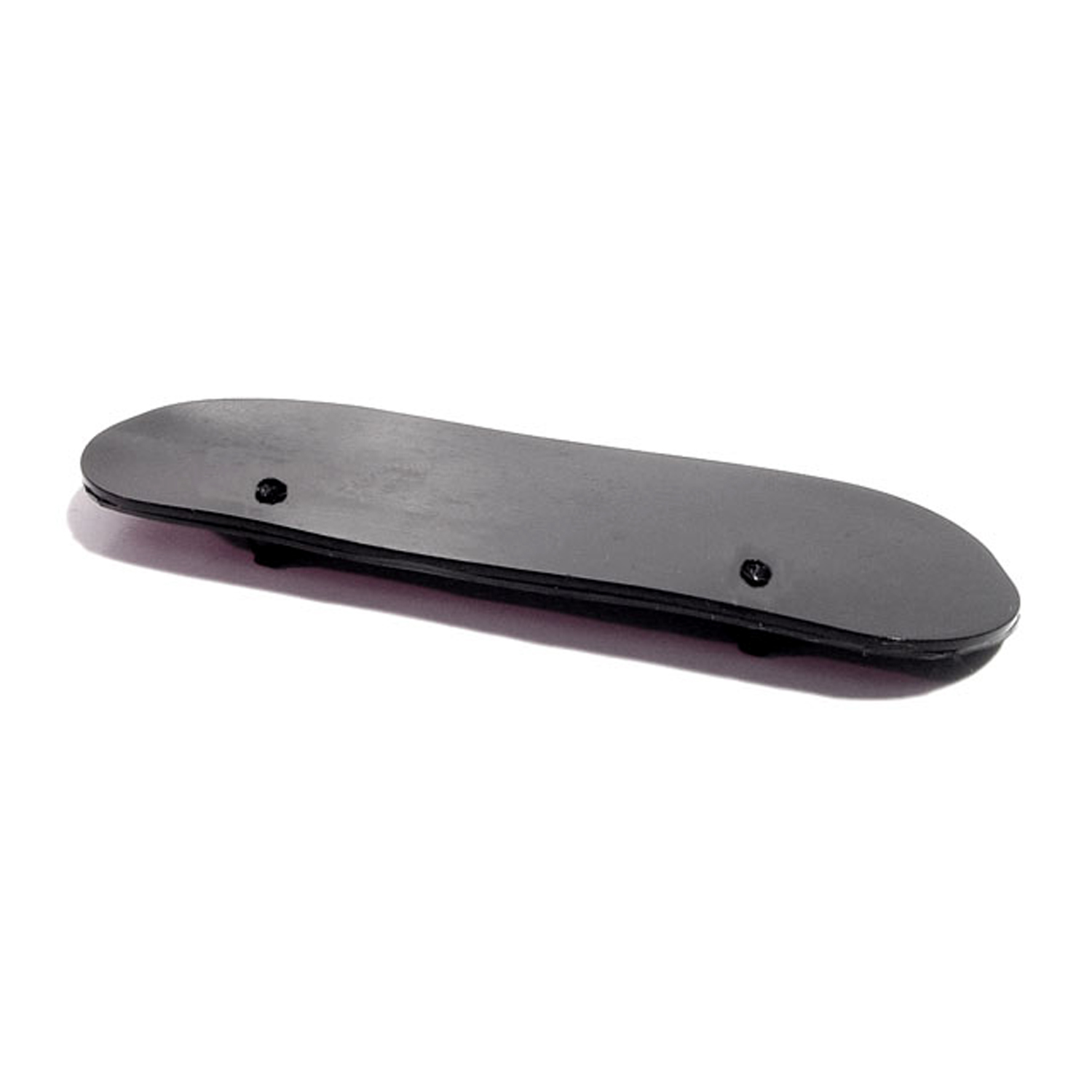 1971 Plymouth Road Runner Drain Flap on Cowl. Each-RP 900-ADrain Flap on Cowl. Each
1971 Plymouth Road Runner Drain Flap on Cowl. Each-RP 900-ADrain Flap on Cowl. Each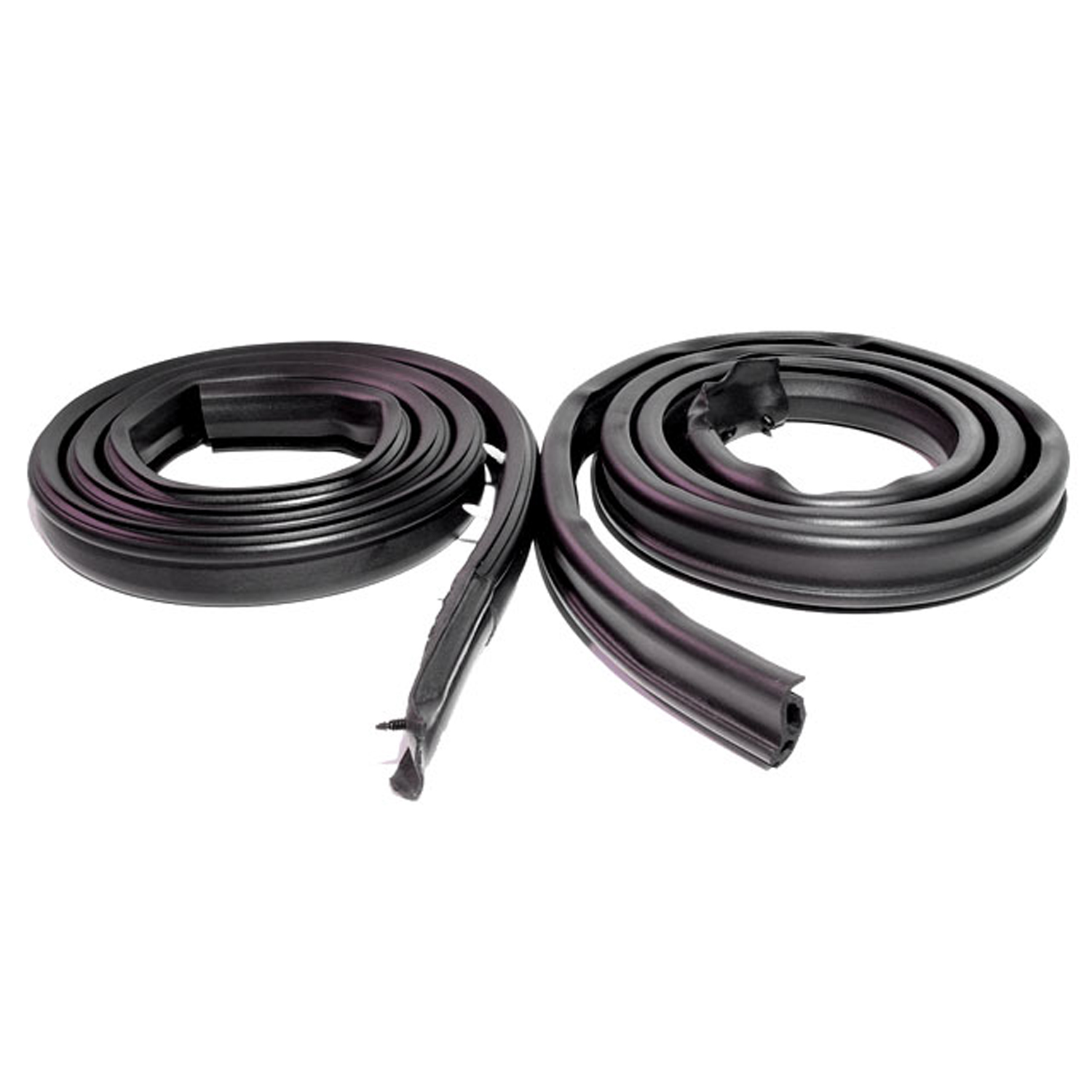 1971 Plymouth Road Runner Molded Roof Rail Seals-RR 4002Molded Roof Rail Seals, for 2-Door Hardtop (does not fit '73-'74 SE). Pair R&L
1971 Plymouth Road Runner Molded Roof Rail Seals-RR 4002Molded Roof Rail Seals, for 2-Door Hardtop (does not fit '73-'74 SE). Pair R&L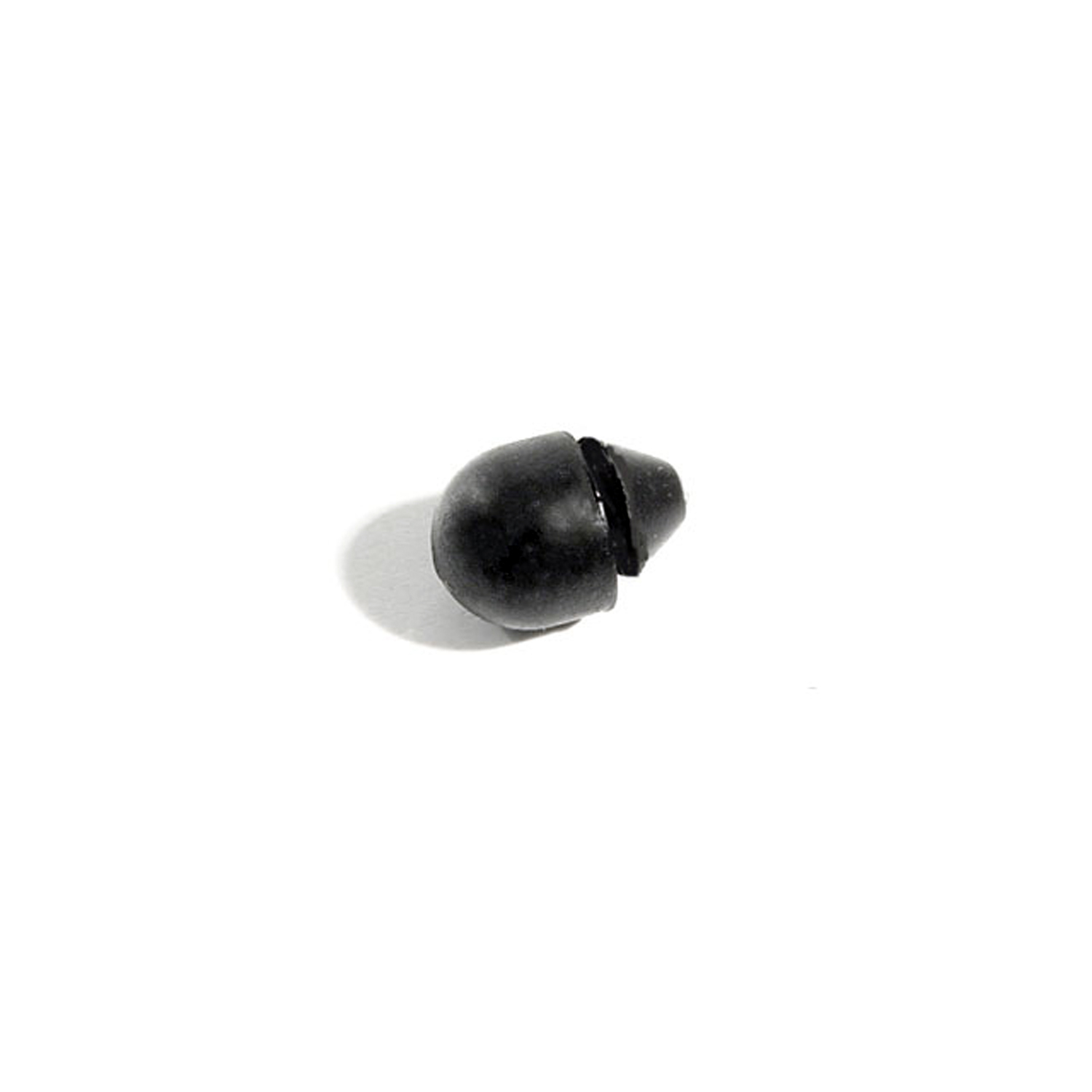 1971 Plymouth Road Runner Glove Box Bumper. 1/2" Long. Each-SB 121Glove Box Bumper. 1/2" Long. Each
1971 Plymouth Road Runner Glove Box Bumper. 1/2" Long. Each-SB 121Glove Box Bumper. 1/2" Long. Each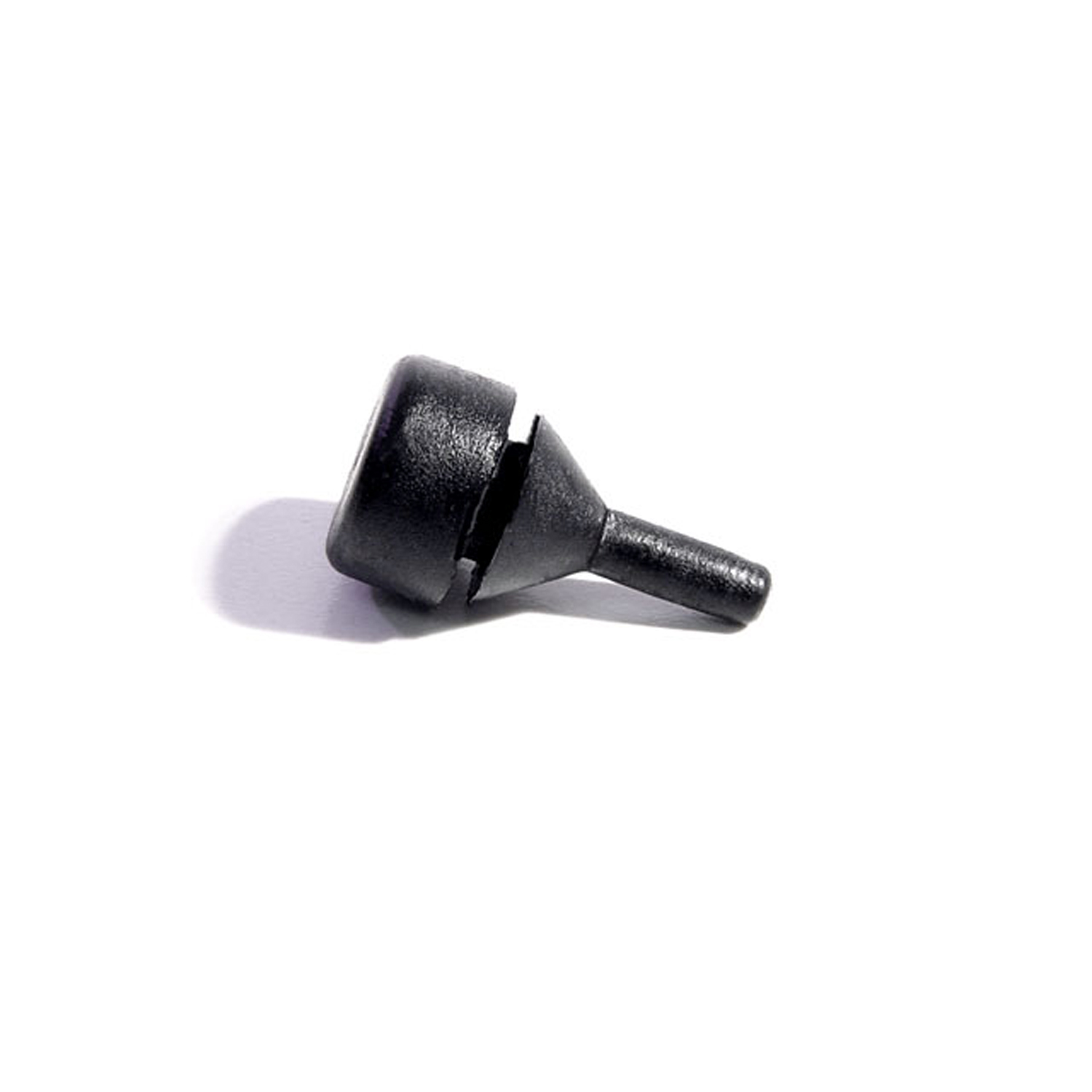 1971 Plymouth Road Runner Ashtray Bumper. 7/8" high, 1/2" O.D. Each-SB 122Ashtray Bumper. 7/8" high, 1/2" O.D. Each
1971 Plymouth Road Runner Ashtray Bumper. 7/8" high, 1/2" O.D. Each-SB 122Ashtray Bumper. 7/8" high, 1/2" O.D. Each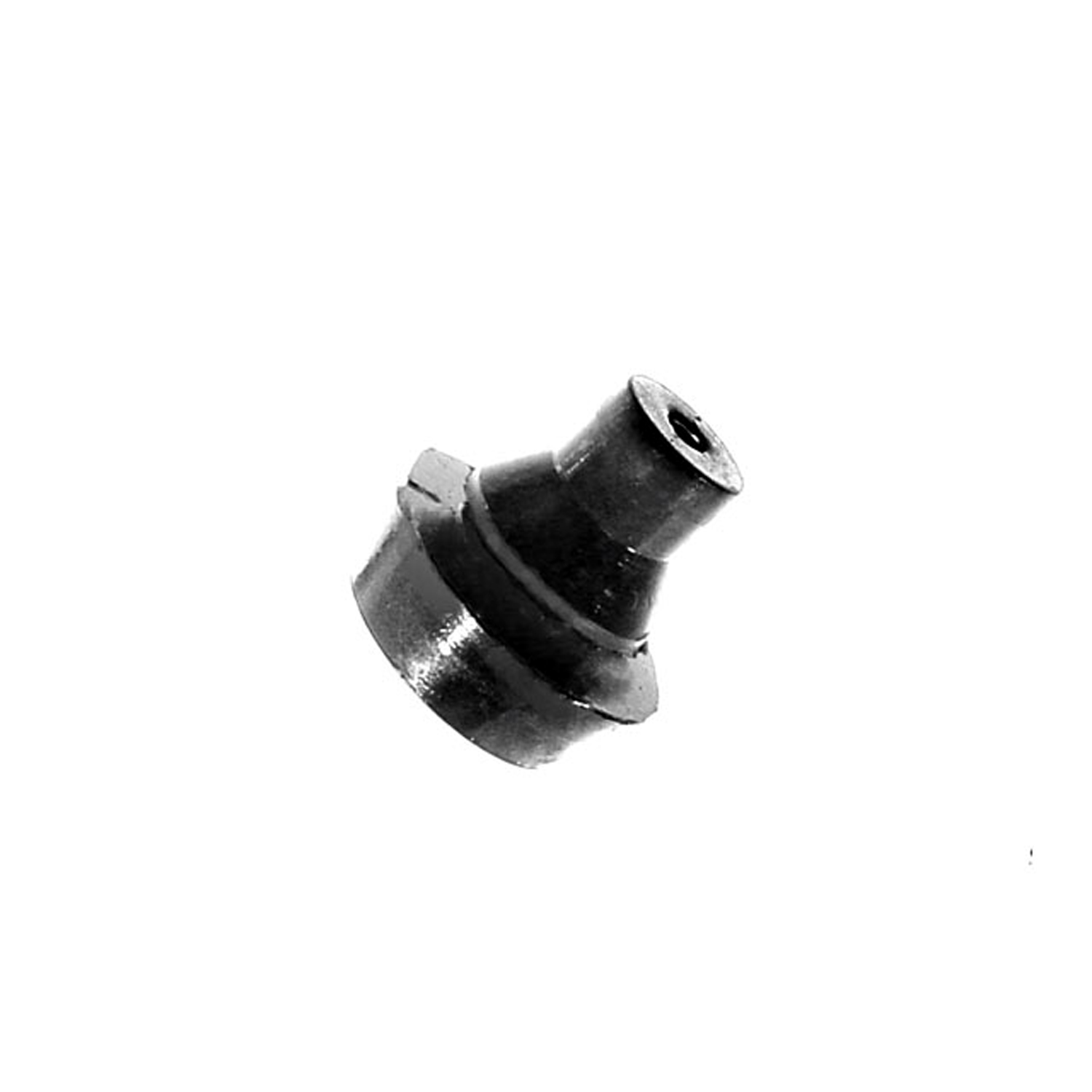 1971 Plymouth Road Runner License Plate Bumper. Replaces OEM #2094618-SB 123License Plate Bumper. Replaces OEM #2094618. 5/8" high, 5/8" O.D. Each
1971 Plymouth Road Runner License Plate Bumper. Replaces OEM #2094618-SB 123License Plate Bumper. Replaces OEM #2094618. 5/8" high, 5/8" O.D. Each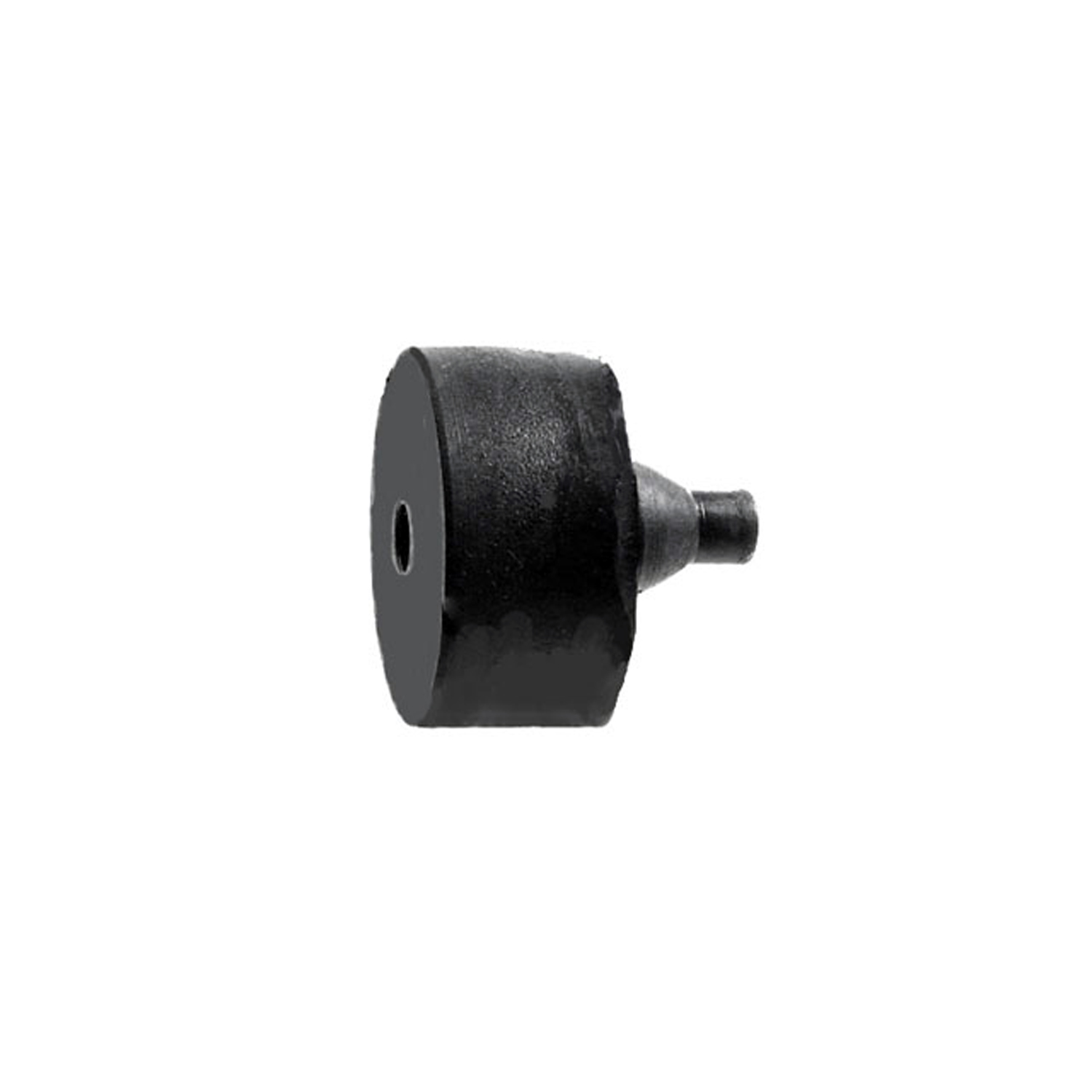 1971 Plymouth Road Runner Hood and Trunk Bumper. Replaces OEM #2785714. Each-SB 124Hood and Trunk Bumper. Replaces OEM #2785714. Each
1971 Plymouth Road Runner Hood and Trunk Bumper. Replaces OEM #2785714. Each-SB 124Hood and Trunk Bumper. Replaces OEM #2785714. Each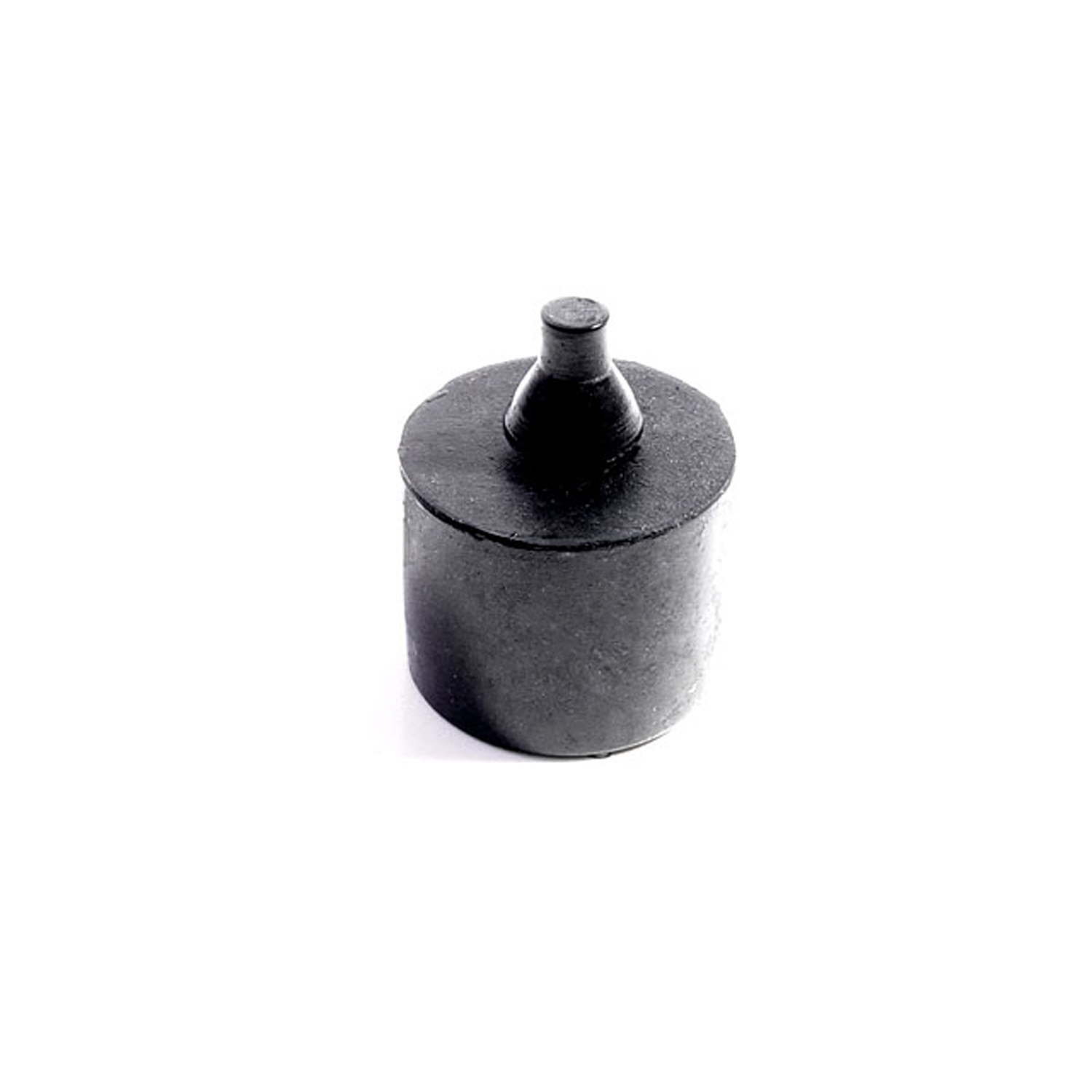 1971 Plymouth Road Runner Rear Center Hood & Trunk Bumper ('68: Trunk '70-'74: Hood)-SB 125Rear Center Hood & Trunk Bumper ('68: Trunk '70-'74: Hood). 1-1/8" high, 15/16" O.D. Each
1971 Plymouth Road Runner Rear Center Hood & Trunk Bumper ('68: Trunk '70-'74: Hood)-SB 125Rear Center Hood & Trunk Bumper ('68: Trunk '70-'74: Hood). 1-1/8" high, 15/16" O.D. Each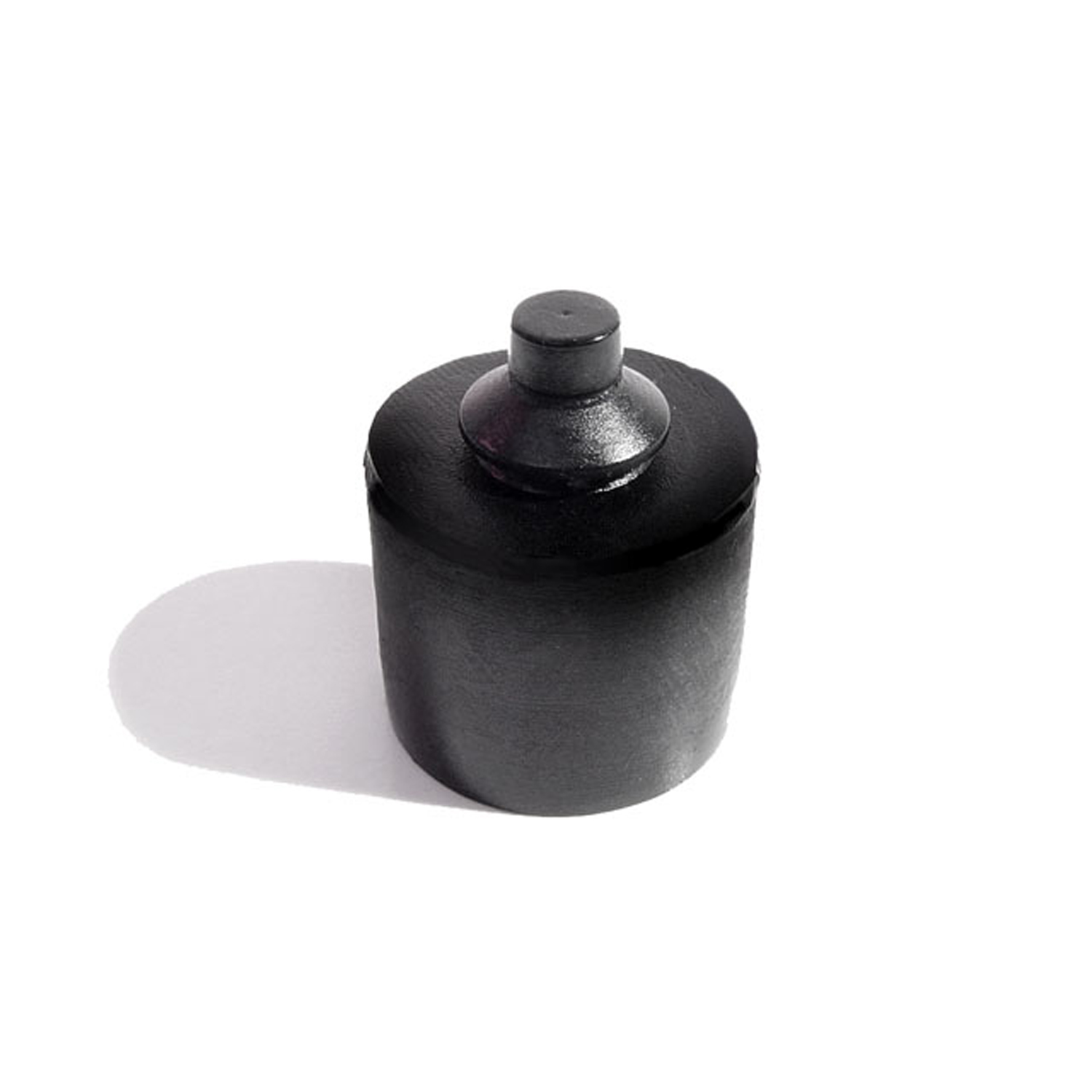 1971 Plymouth Road Runner Trunk Bumper. Each-SB 125-ATrunk Bumper. Each Width side to side 7/8". Height of bumper head 3/4 tall. Stem width is 3/8 Width of step 1/2. Hole at the top 1/8 diameter.
1971 Plymouth Road Runner Trunk Bumper. Each-SB 125-ATrunk Bumper. Each Width side to side 7/8". Height of bumper head 3/4 tall. Stem width is 3/8 Width of step 1/2. Hole at the top 1/8 diameter.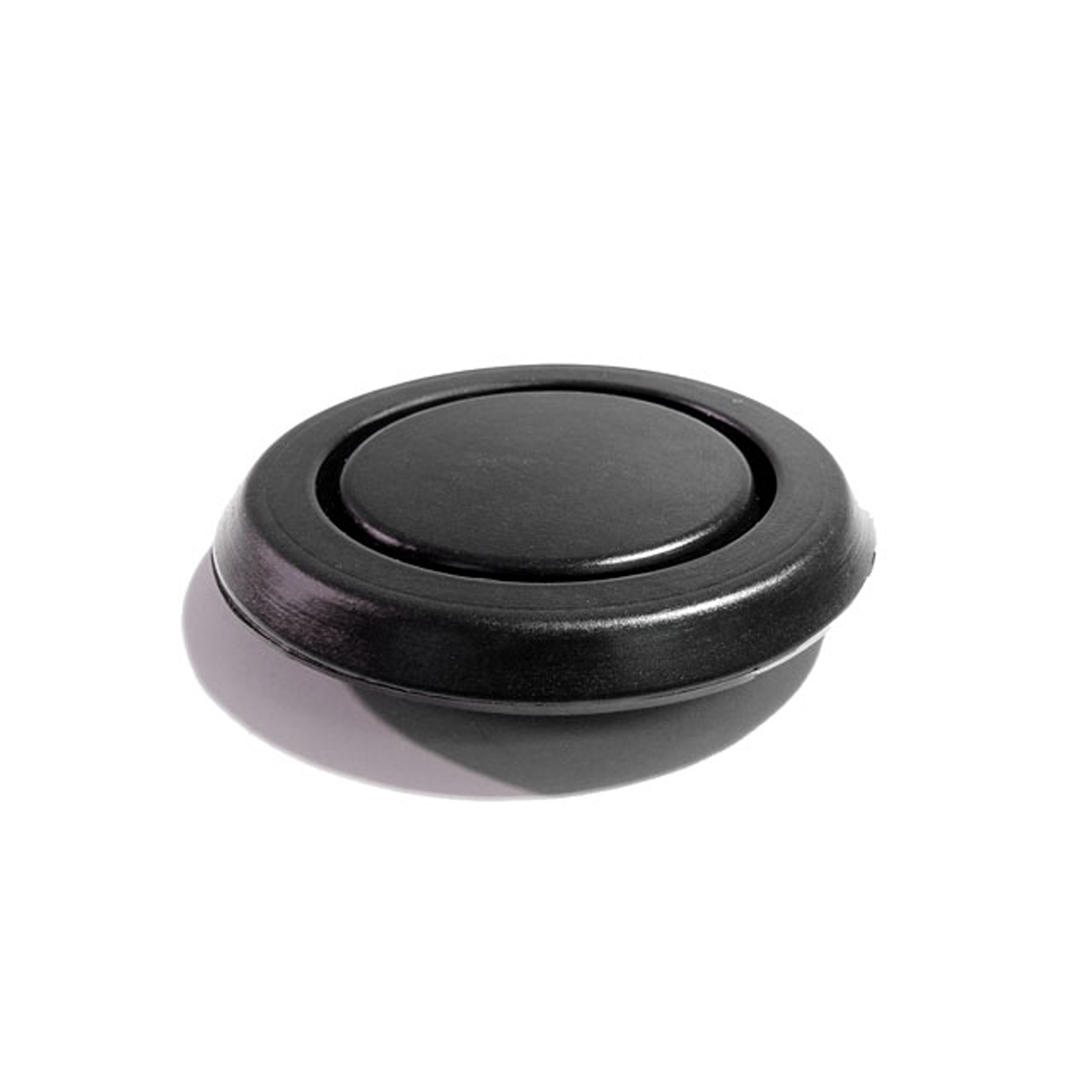 1971 Plymouth Road Runner Trunk Floor Plug. 2-1/8" O.D. Fits 1-3/4" hole-SB 127Trunk Floor Plug. 2-1/8" O.D. Fits 1-3/4" hole. Replaces OEM #2189375. Each
1971 Plymouth Road Runner Trunk Floor Plug. 2-1/8" O.D. Fits 1-3/4" hole-SB 127Trunk Floor Plug. 2-1/8" O.D. Fits 1-3/4" hole. Replaces OEM #2189375. Each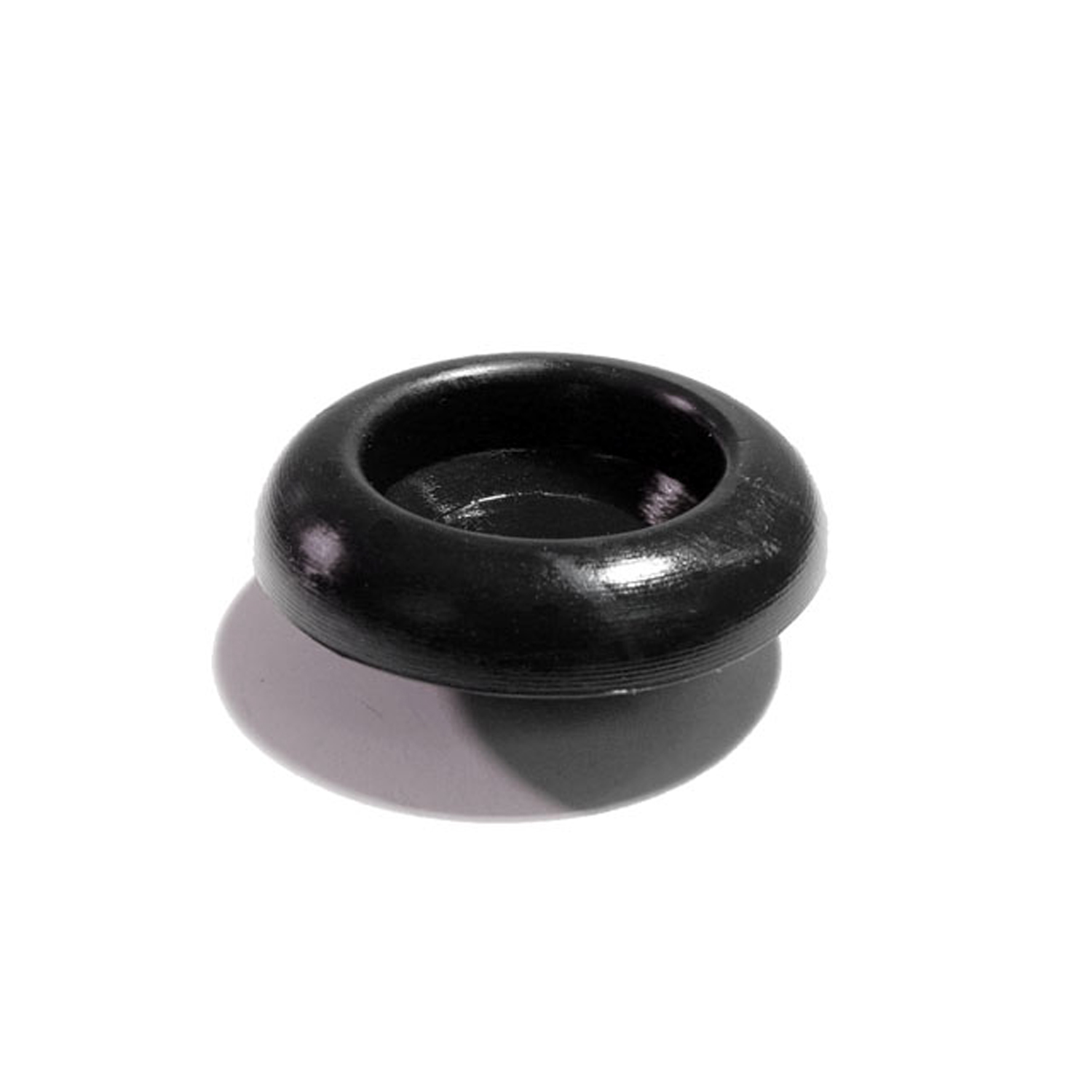 1971 Plymouth Road Runner Trunk and Body Plug. Fits 1-1/8" hole. Each-SB 127-DTrunk and Body Plug. Fits 1-1/8" hole. Each
1971 Plymouth Road Runner Trunk and Body Plug. Fits 1-1/8" hole. Each-SB 127-DTrunk and Body Plug. Fits 1-1/8" hole. Each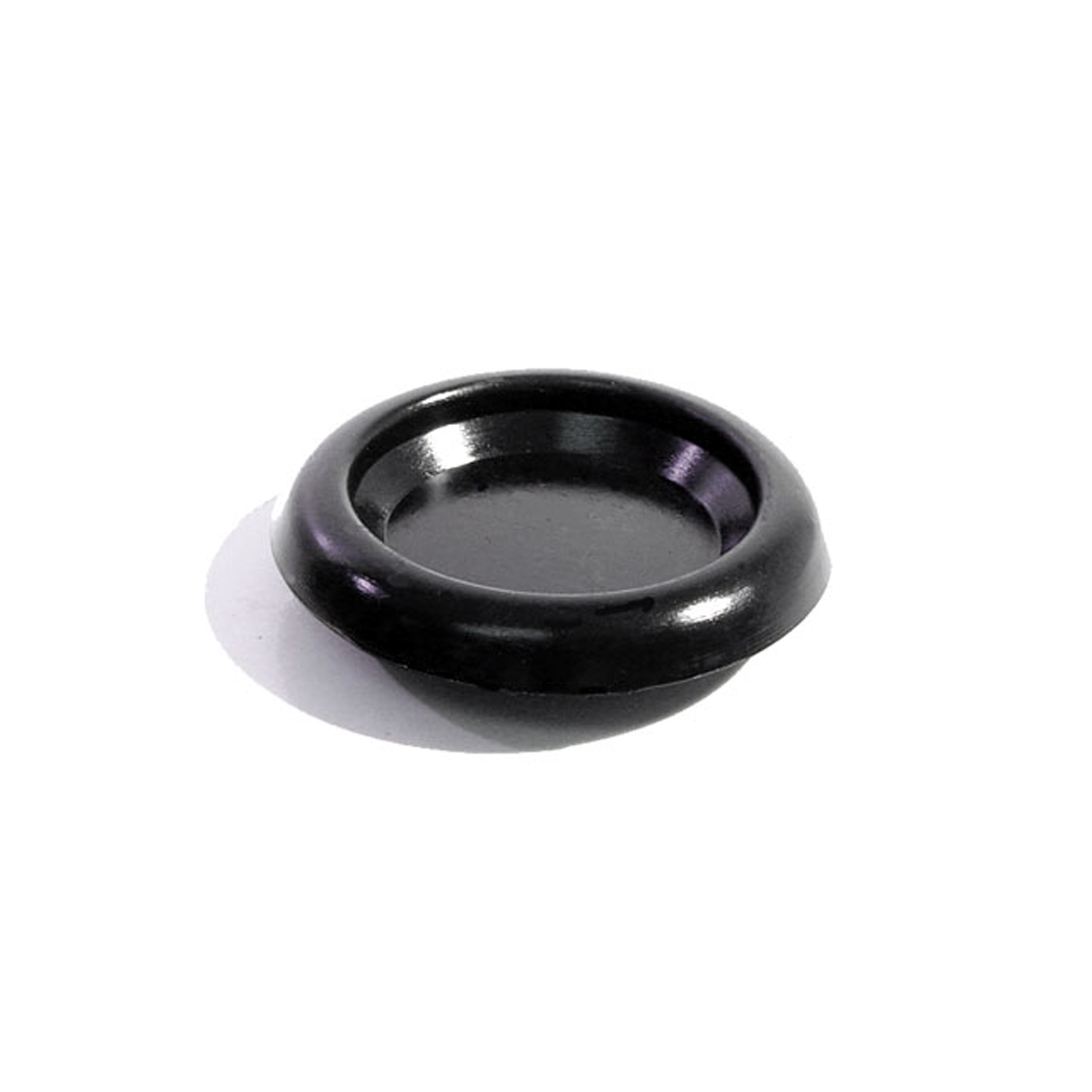 1971 Plymouth Road Runner Trunk and Body Plug. Fits 1-15/16" hole. Each-SB 127-ETrunk and Body Plug. Fits 1-15/16" hole. Each
1971 Plymouth Road Runner Trunk and Body Plug. Fits 1-15/16" hole. Each-SB 127-ETrunk and Body Plug. Fits 1-15/16" hole. Each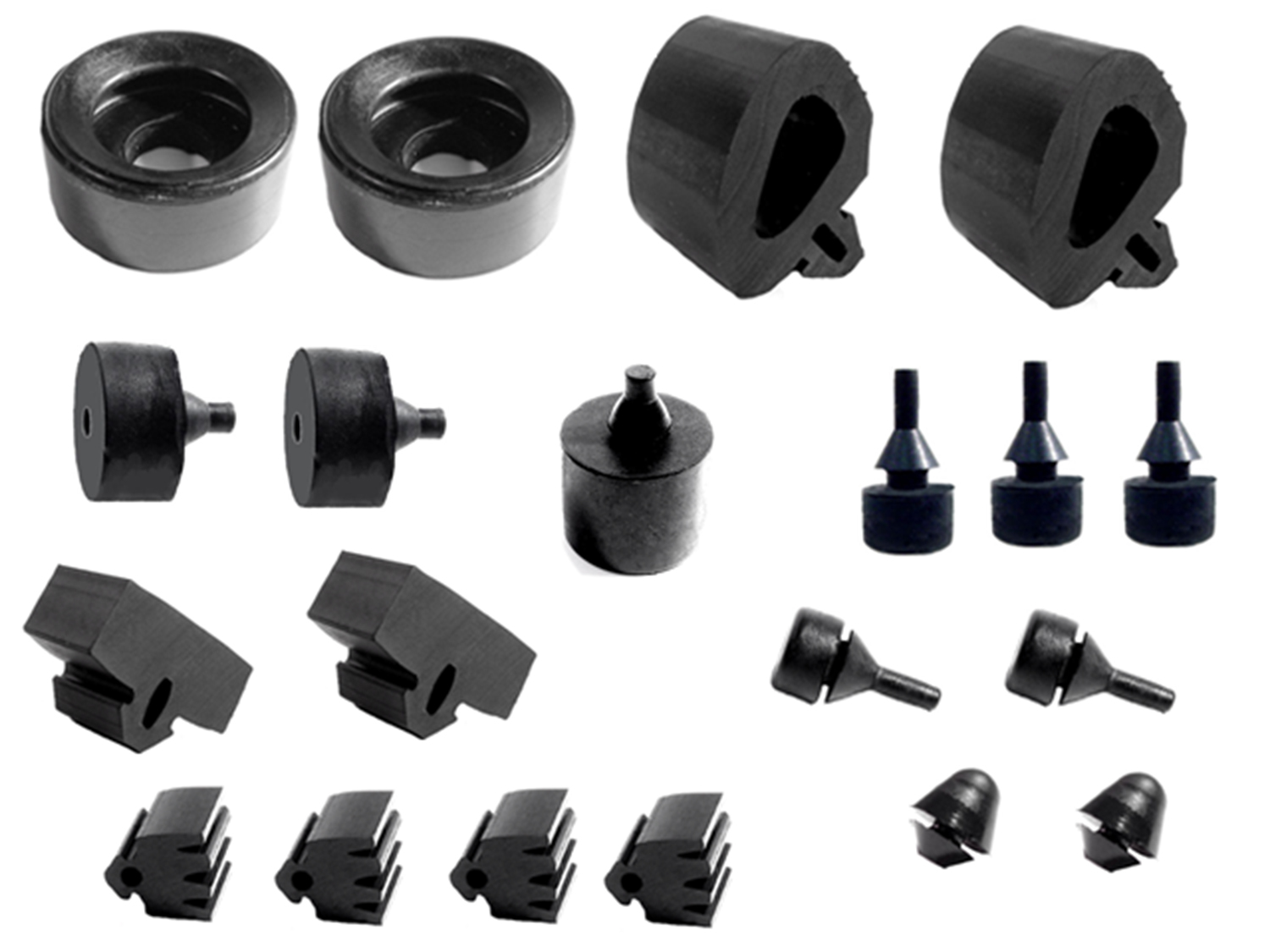 1971 Plymouth Road Runner Snap-In-Bumper Kit-SBK 2324Snap-In-Bumper Kit. 20-Piece Set Includes: (4)DB 53, (2)HA 8-A, (2)HF 19-A, (2)HF 62, (2)SB 121, (2)SB 122, (2)SB 124, (1)SB 125, (3)SB 86
1971 Plymouth Road Runner Snap-In-Bumper Kit-SBK 2324Snap-In-Bumper Kit. 20-Piece Set Includes: (4)DB 53, (2)HA 8-A, (2)HF 19-A, (2)HF 62, (2)SB 121, (2)SB 122, (2)SB 124, (1)SB 125, (3)SB 86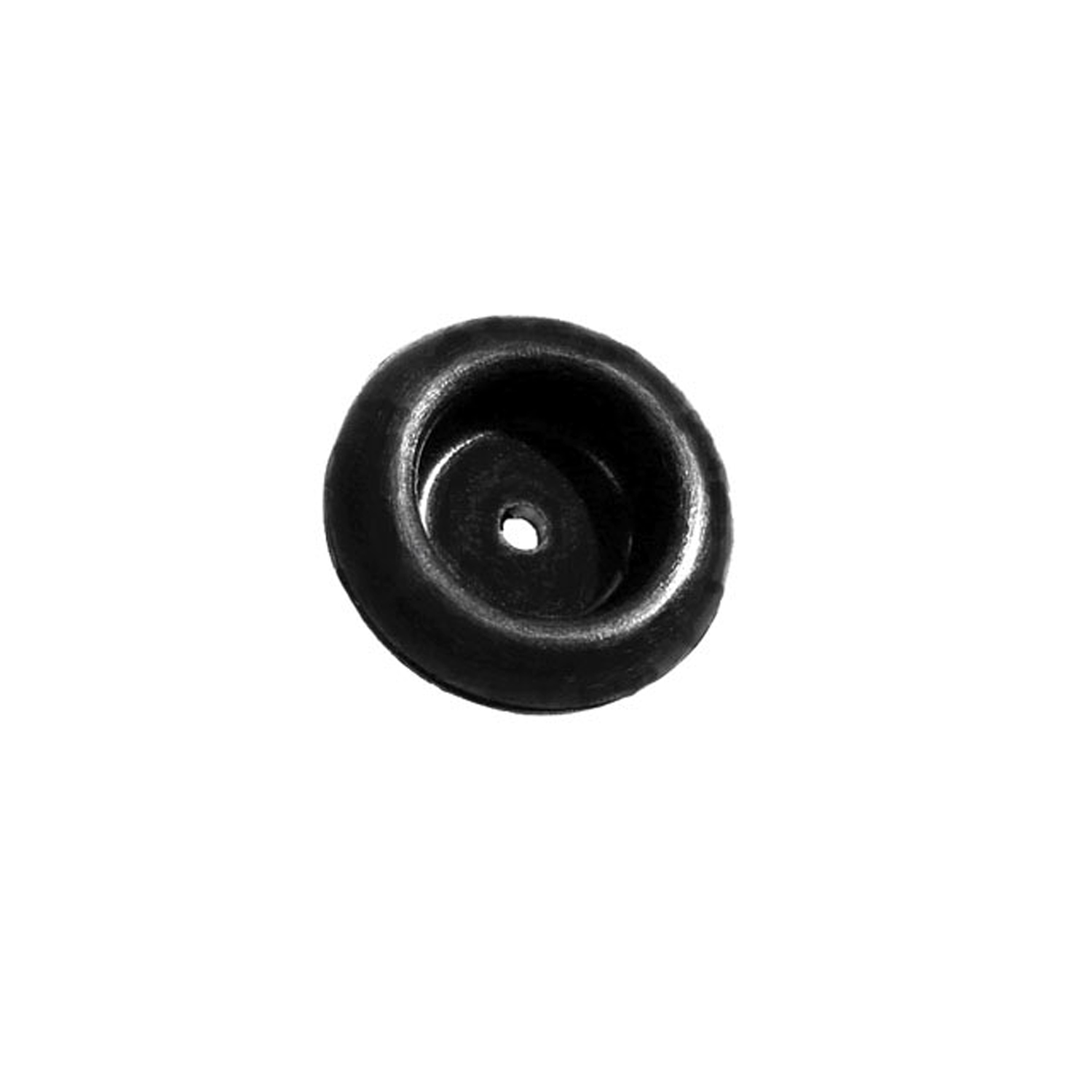 1971 Plymouth Road Runner Floor Panel Wire Grommet. Fits 3/4" hole. Each-SM 49Floor Panel Wire Grommet. Fits 3/4" hole. Each
1971 Plymouth Road Runner Floor Panel Wire Grommet. Fits 3/4" hole. Each-SM 49Floor Panel Wire Grommet. Fits 3/4" hole. Each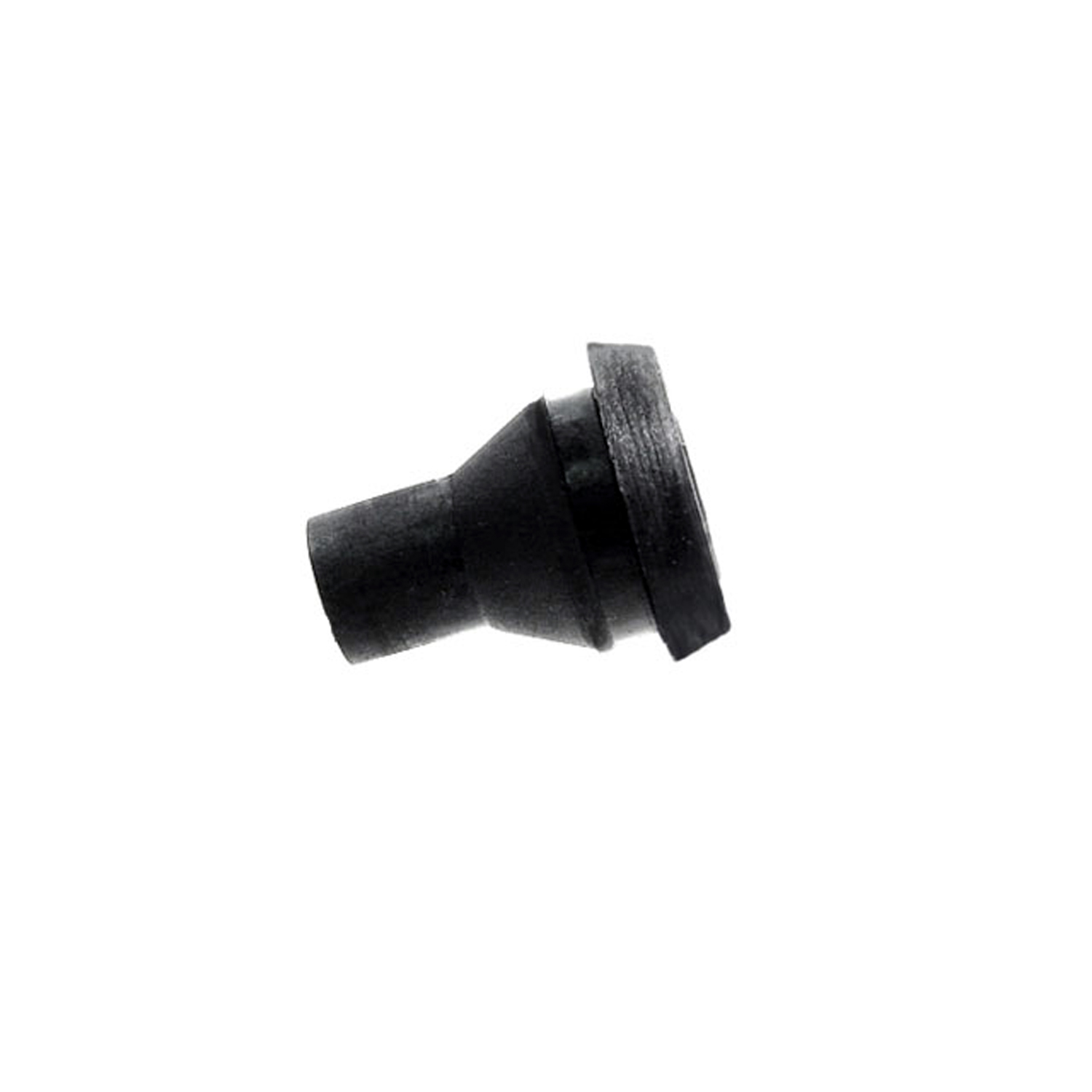 1971 Plymouth Road Runner License Light Wire Grommet. Each-SM 72License Light Wire Grommet. Each
1971 Plymouth Road Runner License Light Wire Grommet. Each-SM 72License Light Wire Grommet. Each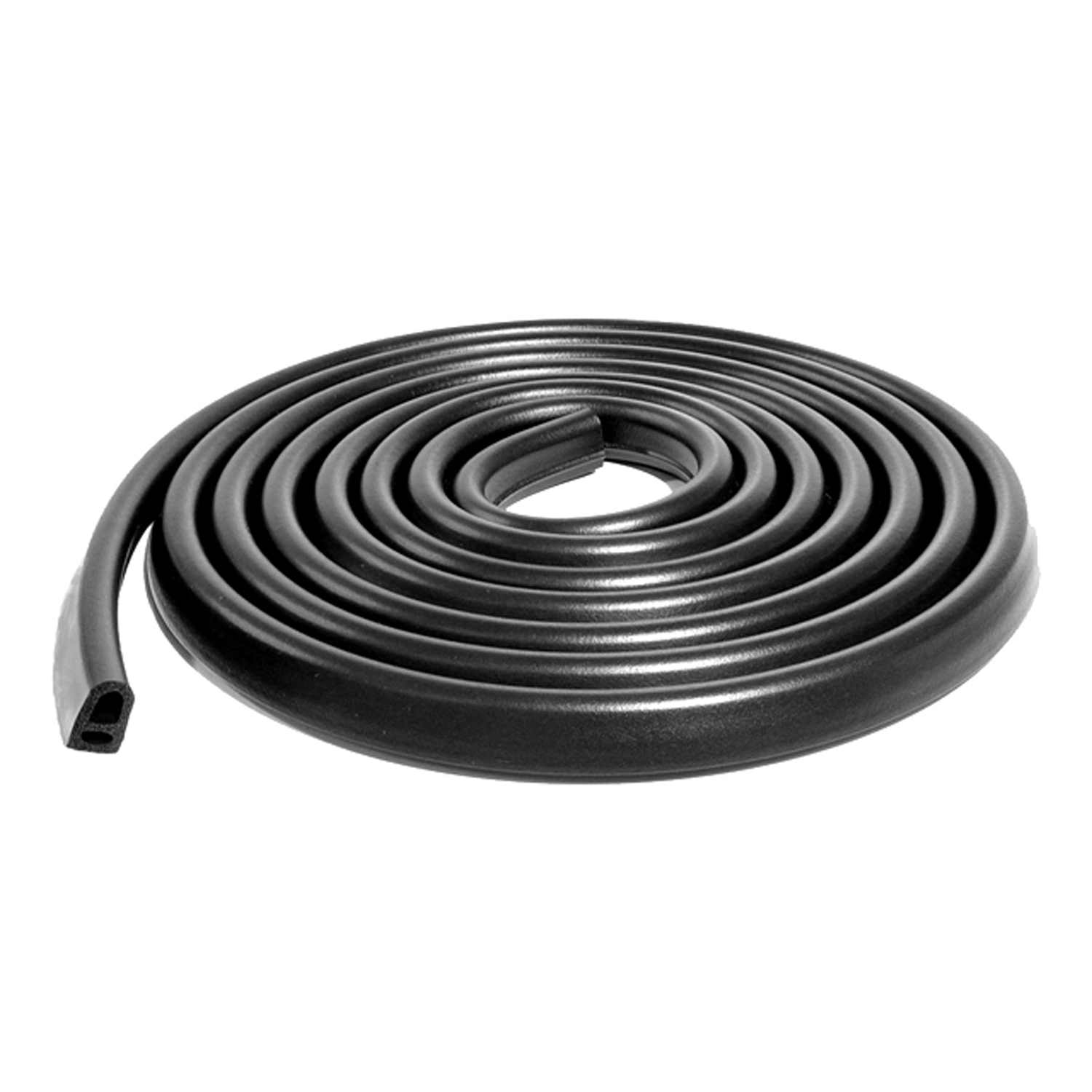 1971 Plymouth Road Runner Trunk seal. 2-door hardtop-TK 56-B/18Trunk seal. 2-door hardtop. '72-'74 Mopar B-body and '73-'76 Mopar A-body. Replaces trunk seals with D-shaped end profile. Each.
1971 Plymouth Road Runner Trunk seal. 2-door hardtop-TK 56-B/18Trunk seal. 2-door hardtop. '72-'74 Mopar B-body and '73-'76 Mopar A-body. Replaces trunk seals with D-shaped end profile. Each.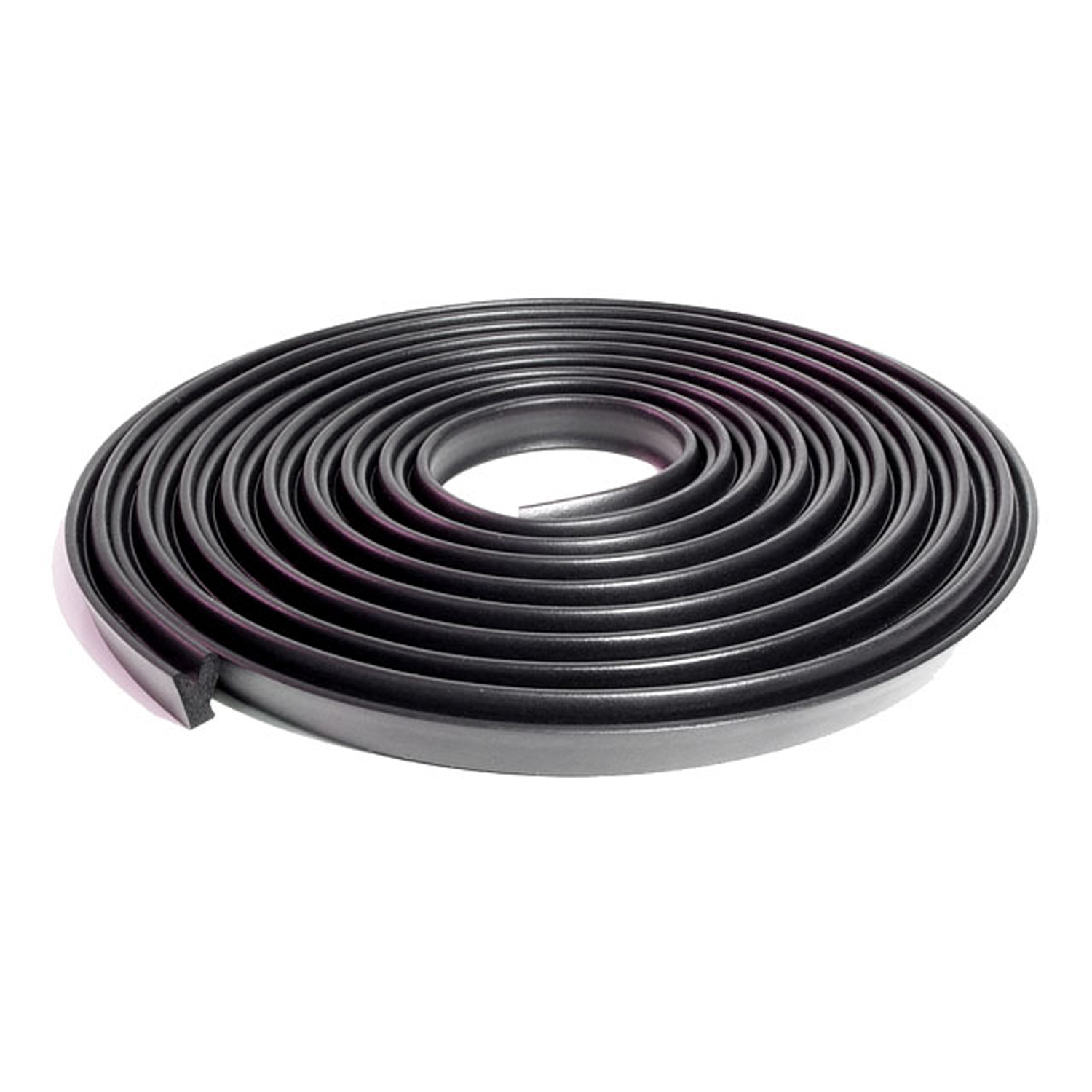 1971 Plymouth Road Runner Trunk Seal-TK 64-A/18Trunk Seal. For cars with flat (not D-shaped) trunk seal end profile. Each
1971 Plymouth Road Runner Trunk Seal-TK 64-A/18Trunk Seal. For cars with flat (not D-shaped) trunk seal end profile. Each 1971 Plymouth Road Runner Trunk Mat-TM 2714Trunk Mat. High quality reproduction, made specific for vehicle. Print on rubber. Each
1971 Plymouth Road Runner Trunk Mat-TM 2714Trunk Mat. High quality reproduction, made specific for vehicle. Print on rubber. Each 1971 Plymouth Road Runner Nylon Lock Cylinder Gasket. 1-1/4" O.D., 7/8" I.D. Each-UM 2700-104Nylon Lock Cylinder Gasket. 1-1/4" O.D., 7/8" I.D. Each
1971 Plymouth Road Runner Nylon Lock Cylinder Gasket. 1-1/4" O.D., 7/8" I.D. Each-UM 2700-104Nylon Lock Cylinder Gasket. 1-1/4" O.D., 7/8" I.D. Each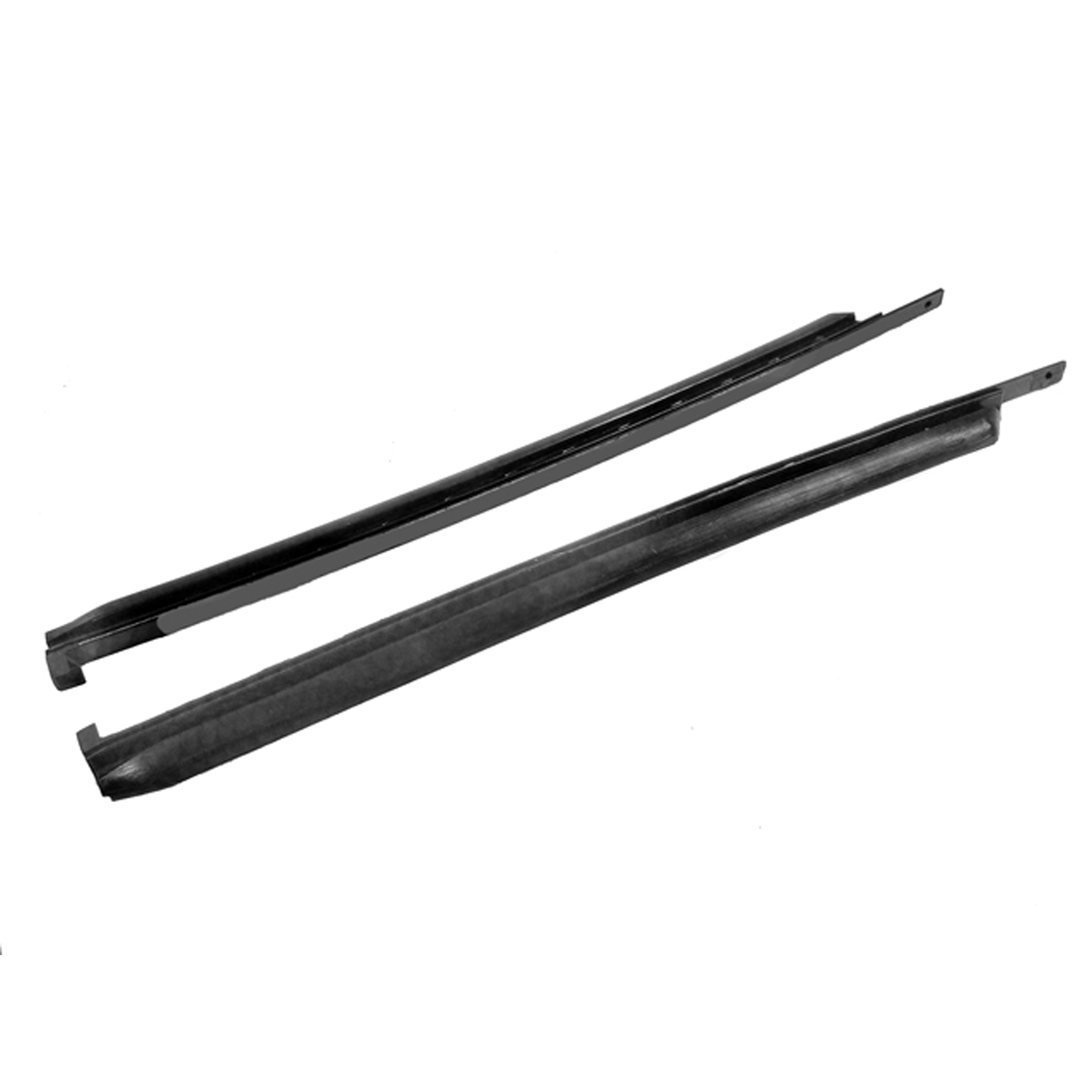 1971 Plymouth Road Runner Rear Roll-up Seals for 2-Door Hardtop. Pair-VS 7-FRear Roll-up Seals for 2-Door Hardtop. Pair
1971 Plymouth Road Runner Rear Roll-up Seals for 2-Door Hardtop. Pair-VS 7-FRear Roll-up Seals for 2-Door Hardtop. Pair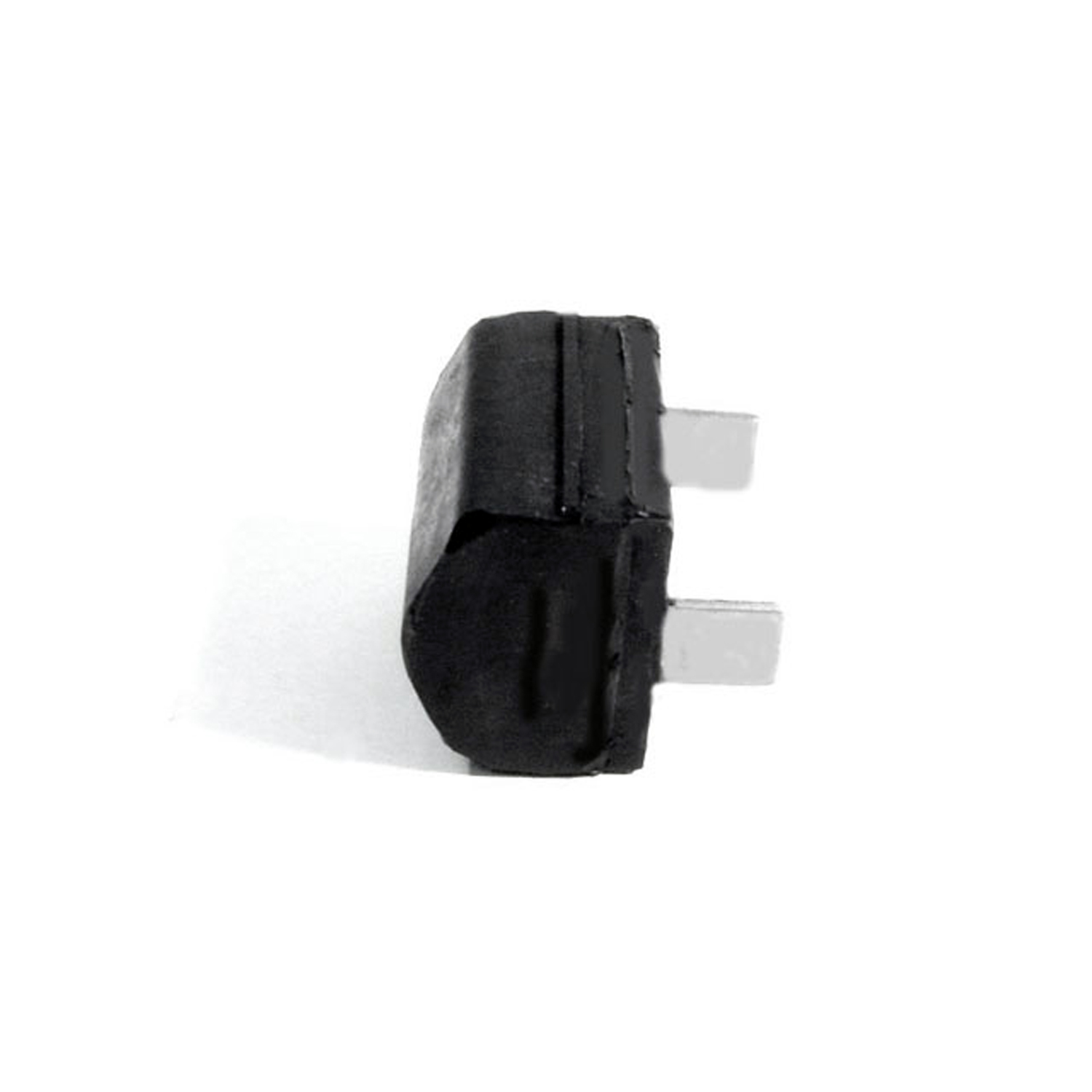 1971 Plymouth Road Runner Rear Axle Pinion Snubber. Each-XB 80Rear Axle Pinion Snubber. Each
1971 Plymouth Road Runner Rear Axle Pinion Snubber. Each-XB 80Rear Axle Pinion Snubber. Each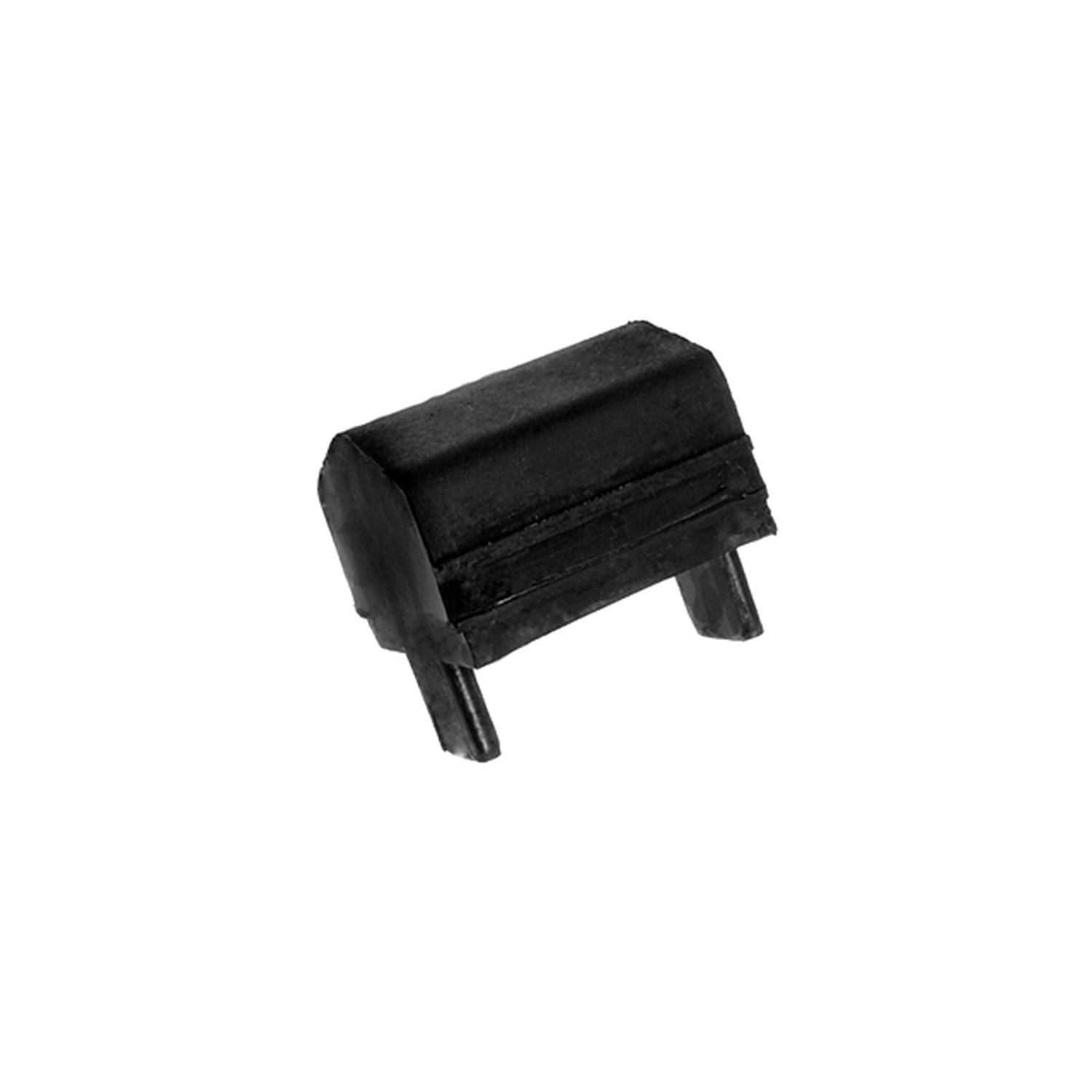 1971 Plymouth Road Runner Rear Axle Pinion Snubber. Each-XB 80-ARear Axle Pinion Snubber. Each
1971 Plymouth Road Runner Rear Axle Pinion Snubber. Each-XB 80-ARear Axle Pinion Snubber. EachWhy Choose Metro?
For over 100 years, Metro Moulded Parts has been the pinnacle of quality in classic car restoration parts. Our commitment to precision and authenticity in every component ensures a perfect fit and an OEM-level appearance.
- Expert Craftsmanship & Quality: Each part is a testament to our dedication to reliability and perfection, crafted from original designs and thoroughly tested.
- Advanced Technology: We use cutting-edge techniques to create flawless, long-lasting parts that surpass others in performance.
- SuperSoft Sponge – The Ultimate Door Seal: Not only are our door seals 30% softer than competitors', but they're also guaranteed to never leak. They effectively reduce wind and road noise, enhancing your classic car's comfort and driving experience.
- Proudly American: Our parts are a product of American craftsmanship, made in the USA with a spirit of excellence and heritage.
- Unrivaled Warranty: We back our products with a 30-year industry-leading warranty, a testament to our confidence in their quality.
Join us in preserving the legacy of classic cars with parts that are crafted for perfection, not just made.

